The Ultimate bucket list experience
Swim With Humpback Whales on the Silver Bank
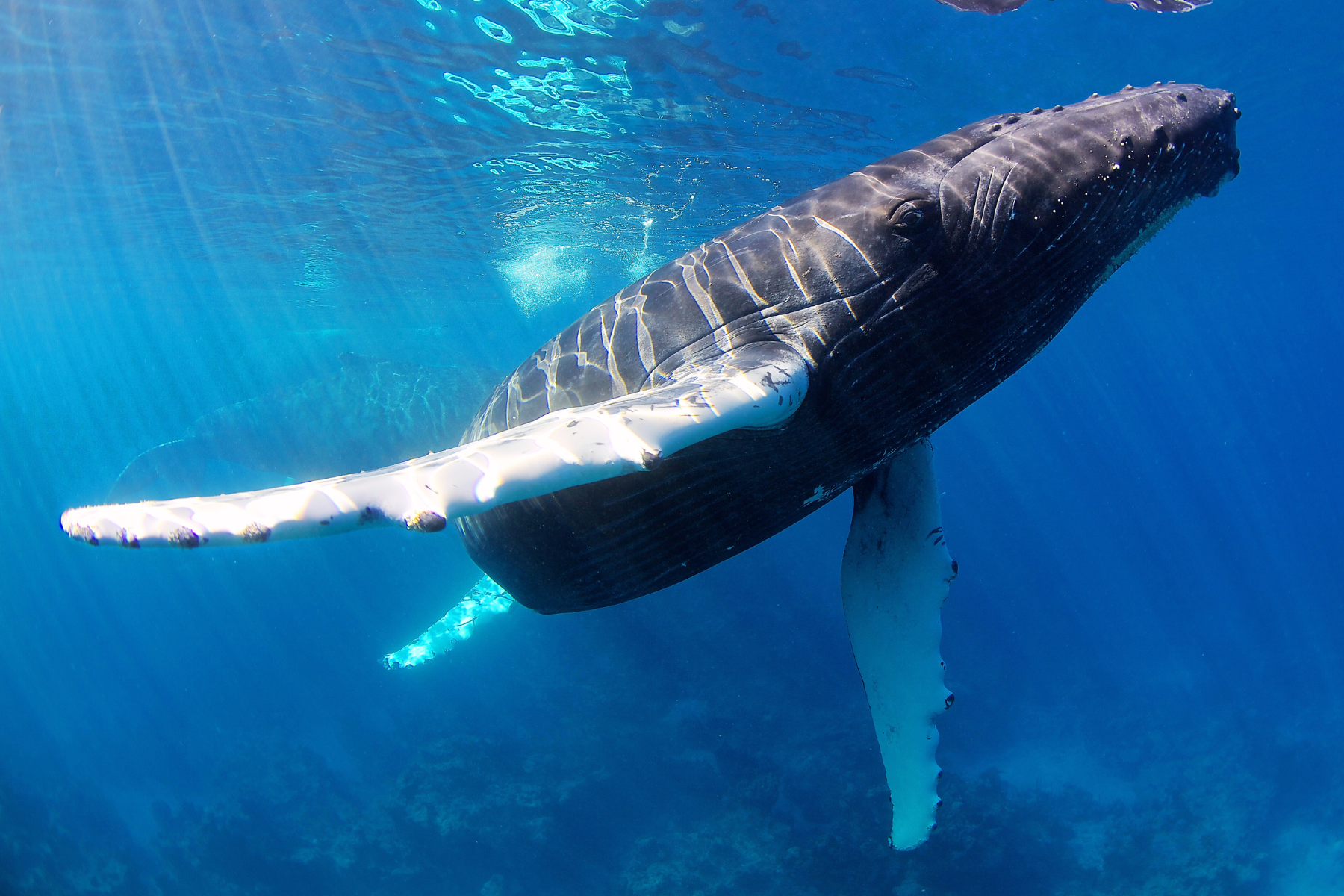
A Life-Changing Adventure
Swim With Humpback Whales! 6 Reasons to Choose Conscious Breath Adventures
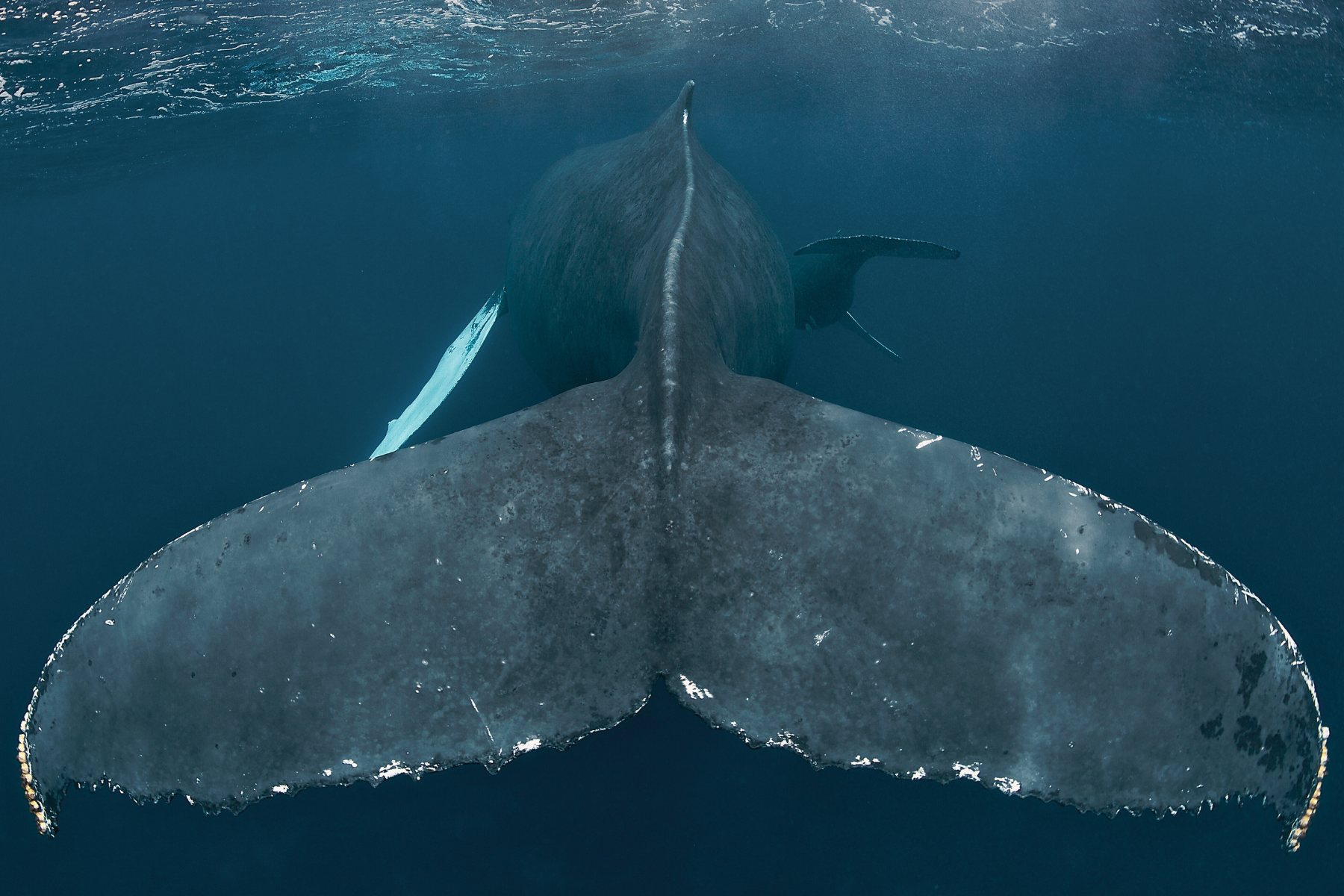
Complete Your Bucket List
Cross Swimming With Humpback Whales off your bucket list after experiencing this incredible wildlife adventure
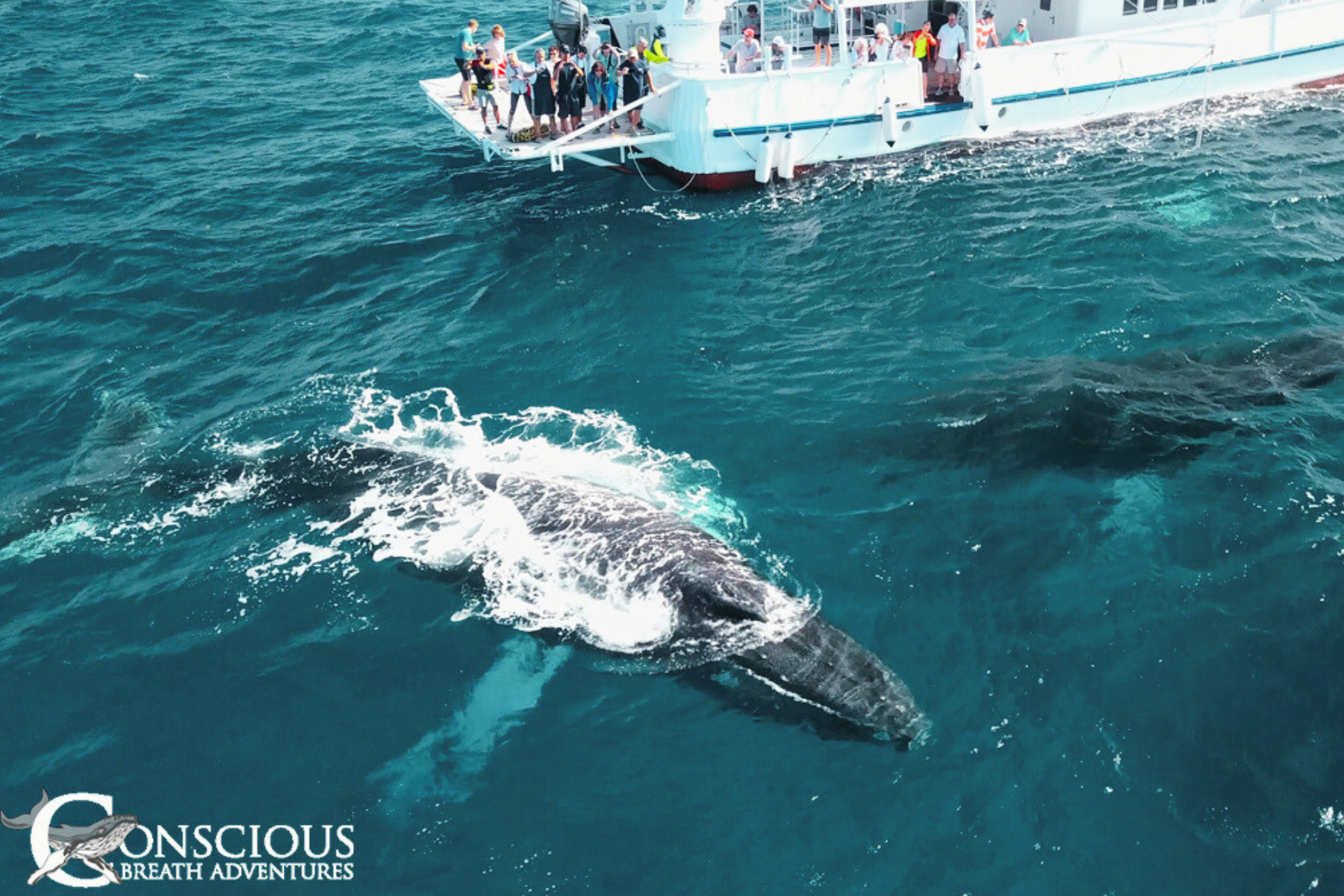
Swim With Humpback Whales
This hidden corner of the Caribbean is the largest breeding ground of the North Atlantic humpback whale where some 3,000-5,000 gather every winter.
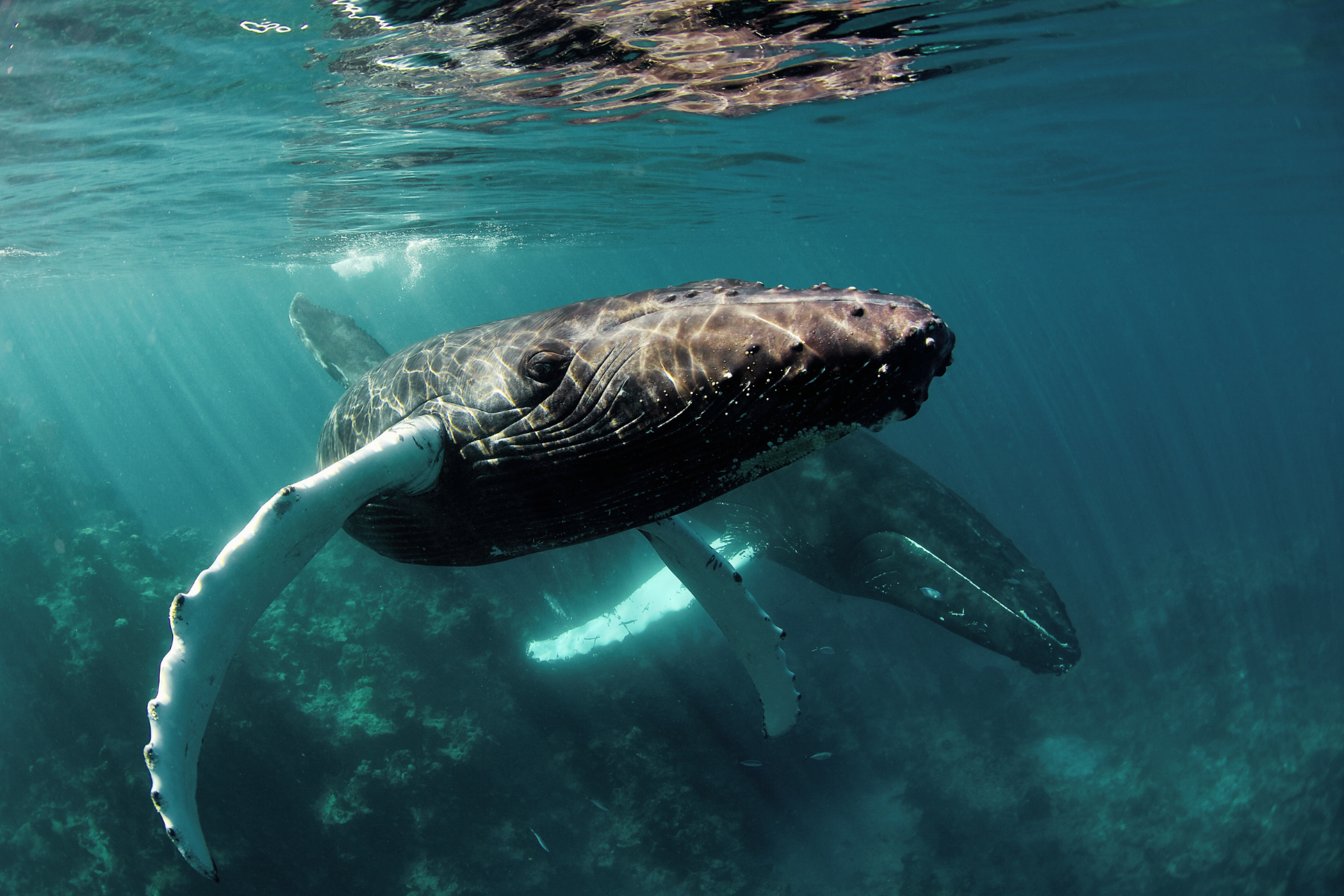
Get the Shot
Thanks to the abundance of whales and the opportunities they provide, the Silver Bank is a world-class destination to capture the ultimate image both above the surface of the water and below.
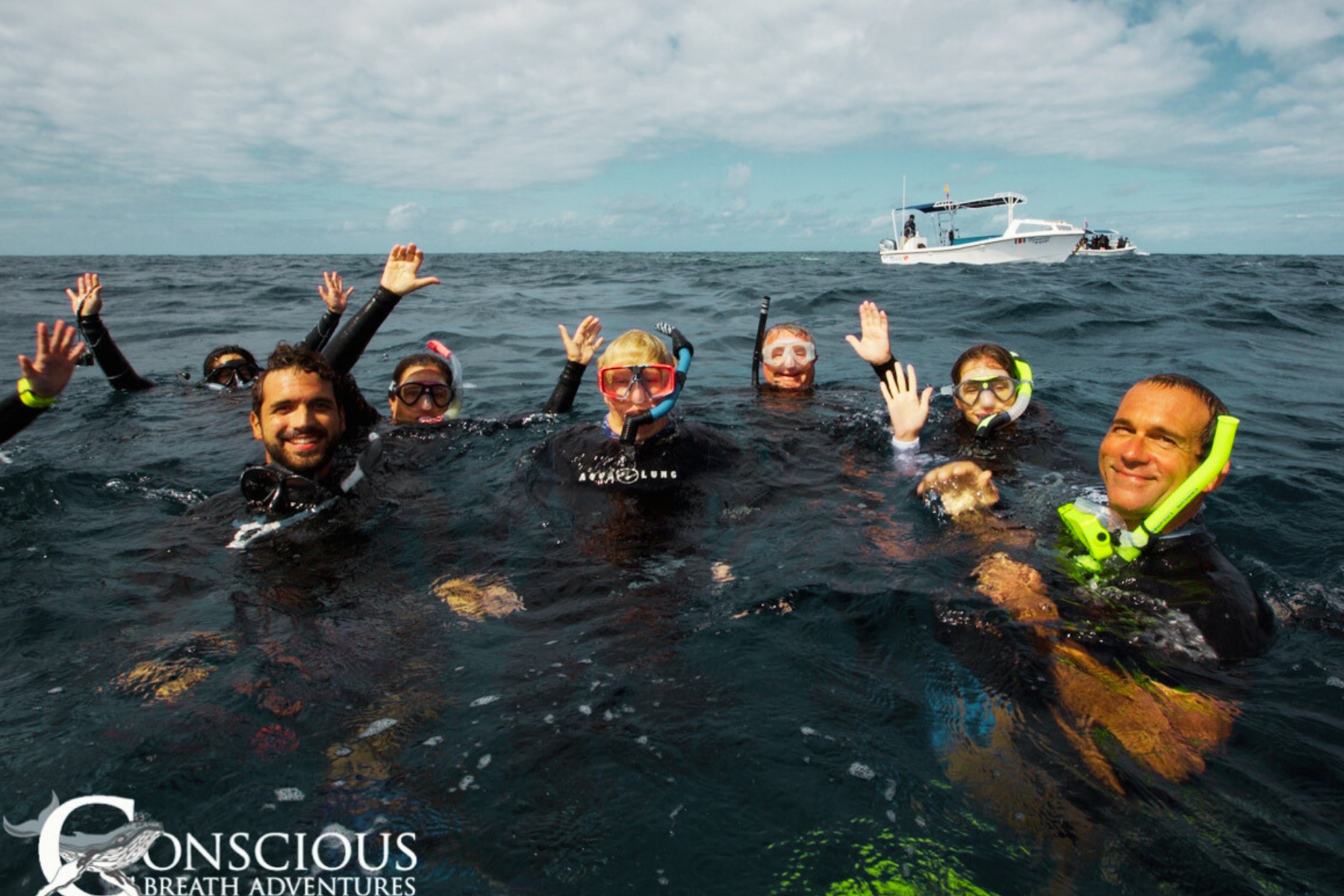
Enjoy a Multicultural Experience
Experience being part of an international team in a multicultural environment as you join other guests traveling from all over the world.
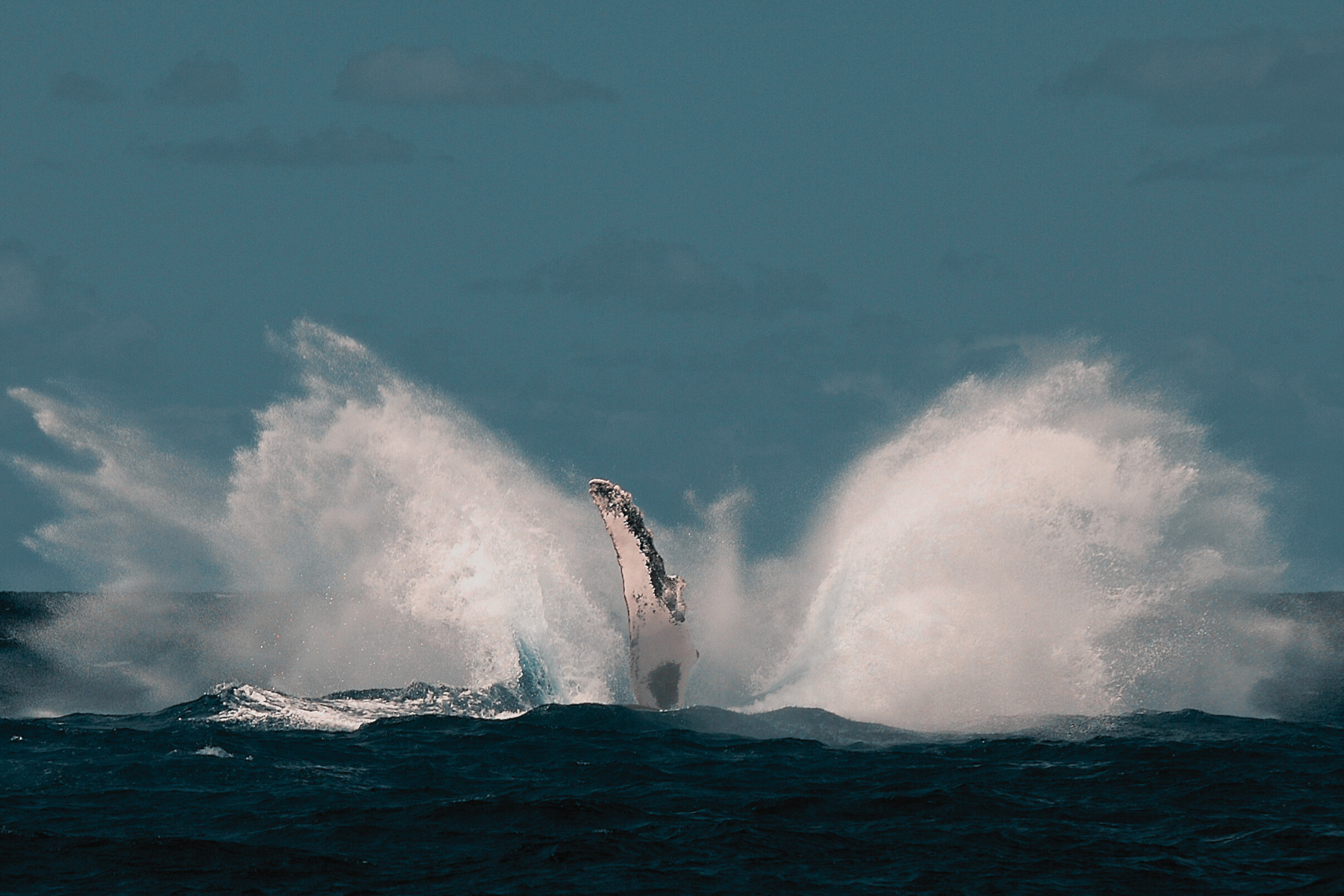
Observe a Variety of Whale Behaviors
Get a close look at breaching, pec-slapping, bobtailing, spyhopping, courtship behaviors & competitive groups & more and you can even swim in their song.
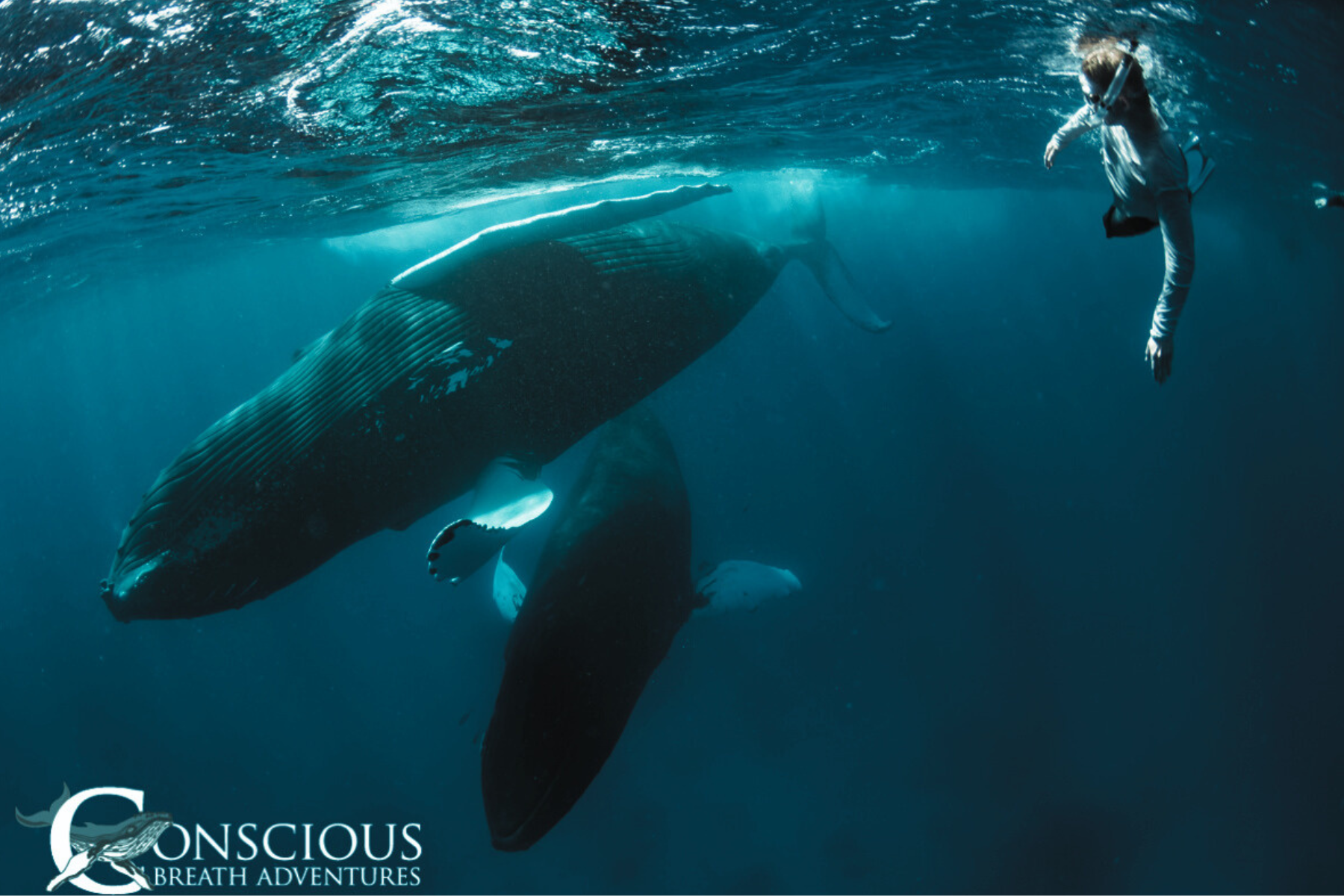
Invest in Personal Growth
Swimming with wild and free humpback whales in their natural environment can be a life-changing & spiritual experience. Connecting with these majestic beings is an adventure that inspires consciousness.
Trip Features
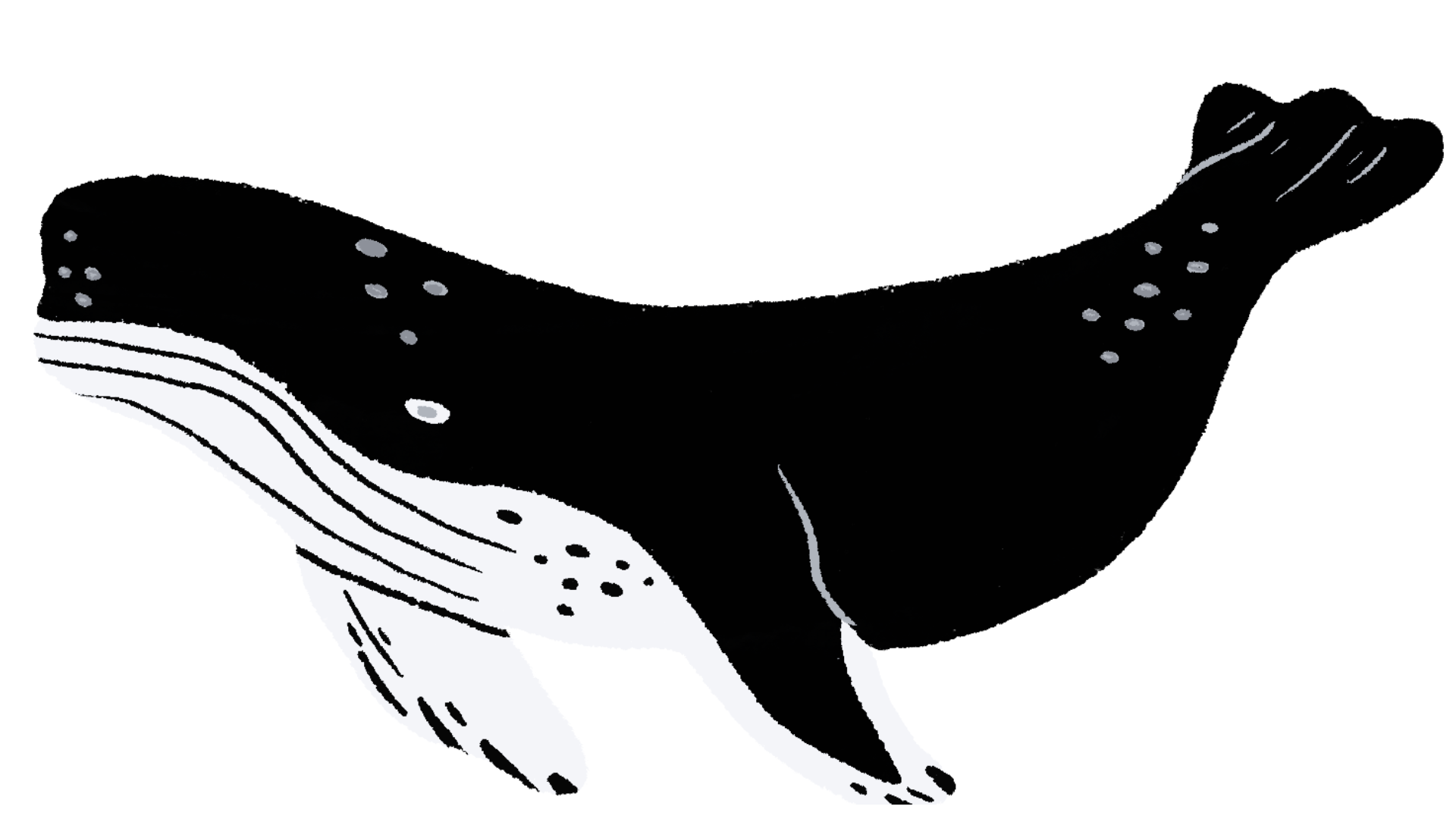
Live among the whales 24 hours a day with 5 nights on the Silver Bank

Spend a week in the Sanctuary for the Marine Mammals of the Dominican Republic
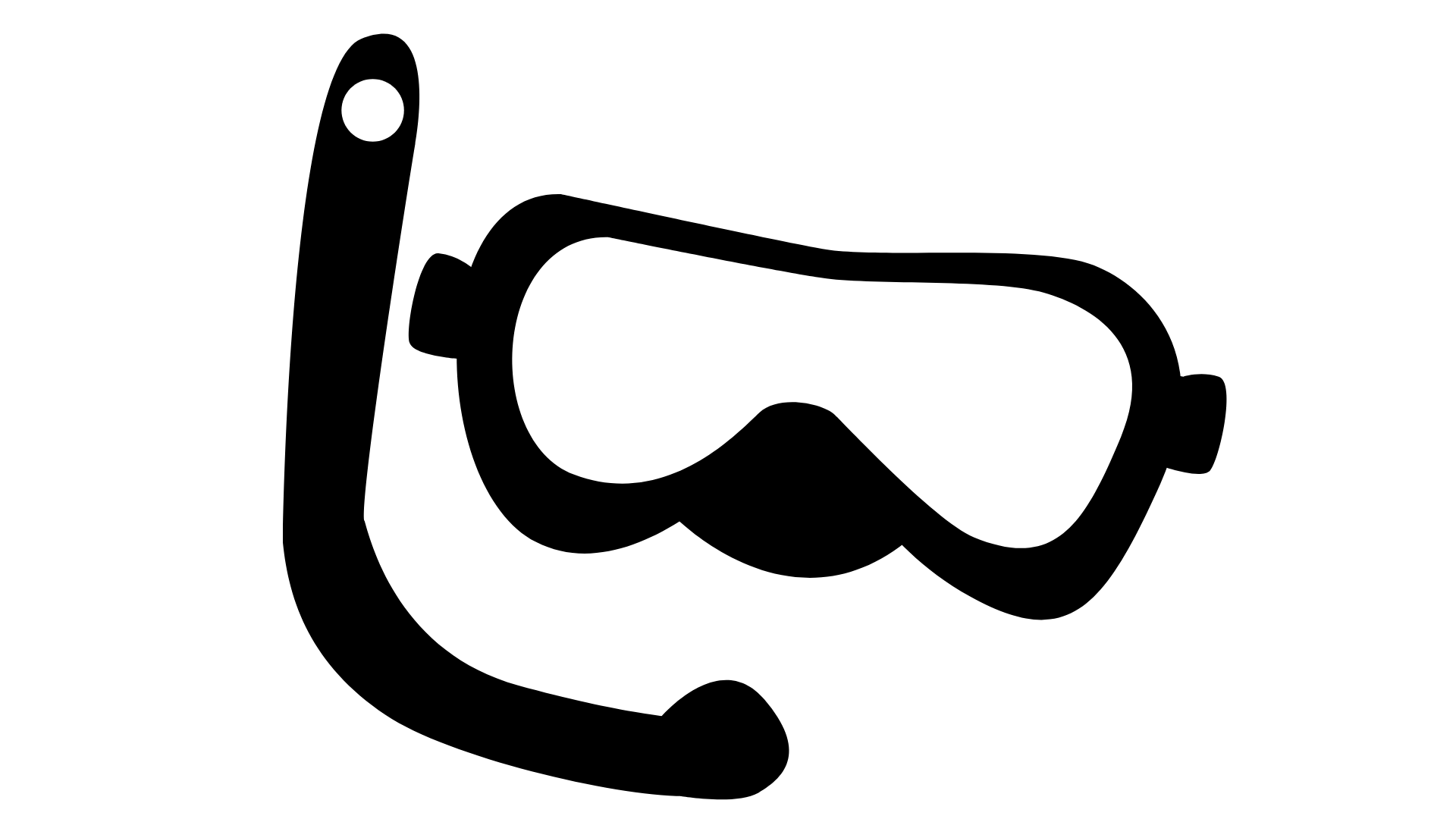
Open to all skill-levels: snorkeling only, no scuba required

Experienced guides – swimming with humpback whales on the Silver Bank is our specialty

Delicious meals, all diets accommodated
Humpback Whale Behaviors

Blow
Experience the powerful conscious breath of a humpback whale up close. Humpbacks have a bushy, balloon-shaped blow that is nearly as wide as it is tall, up to 3m high

Breaching
A breach is when a whale leaps mostly or completely out of the water. It’s the most spectacular and popular of the humpback whale’s many moves. Breaches often occur in series, creating excellent photo opportunities.

Dancing
One of the most profound behaviors to witness on the Silver Bank is a courtship interaction nicknamed dancing. Watch the whales twist, twirl, roll, circle and dive around each other, and us.

Pectoral Fin Slapping
“Pec slapping,” is when a whale lying on it’s side repeatedly raises a long pectoral fin into the air and slams it back to the surface with a loud splash. For example females may slap their fins provocatively to attract males.

Lob Tailing
Also referred to as a tail slap, lobtailing is when a whale lifts its fluke (tail fin) out of the water and brings it down forcefully to slap the surface. The result is always a big splash and loud ‘wham!’

Song
Humpback whales are famous for their complex song. Immerse yourself in music so powerful it vibrates every bone in your body!

“Rowdy” Groups
Reproduction is serious business for humpback whales on their winter breeding grounds. When males arrive they are eager to find a mate. If a receptive female is in the area a “rowdy” group can form.

Spy Hopping
A spyhop is when a whale positions itself vertically in the water to have a look around. The whale hops its head up to spy on its surroundings. Spyhopping is often seen during courtship, or dancing behaviors

Peduncle Throw
The peduncle of a whale is the muscular area where the tail fluke connects to the body. In a peduncle throw the whale throws its tail sideways, slamming into the water with a huge splash.
Our Whale Boats
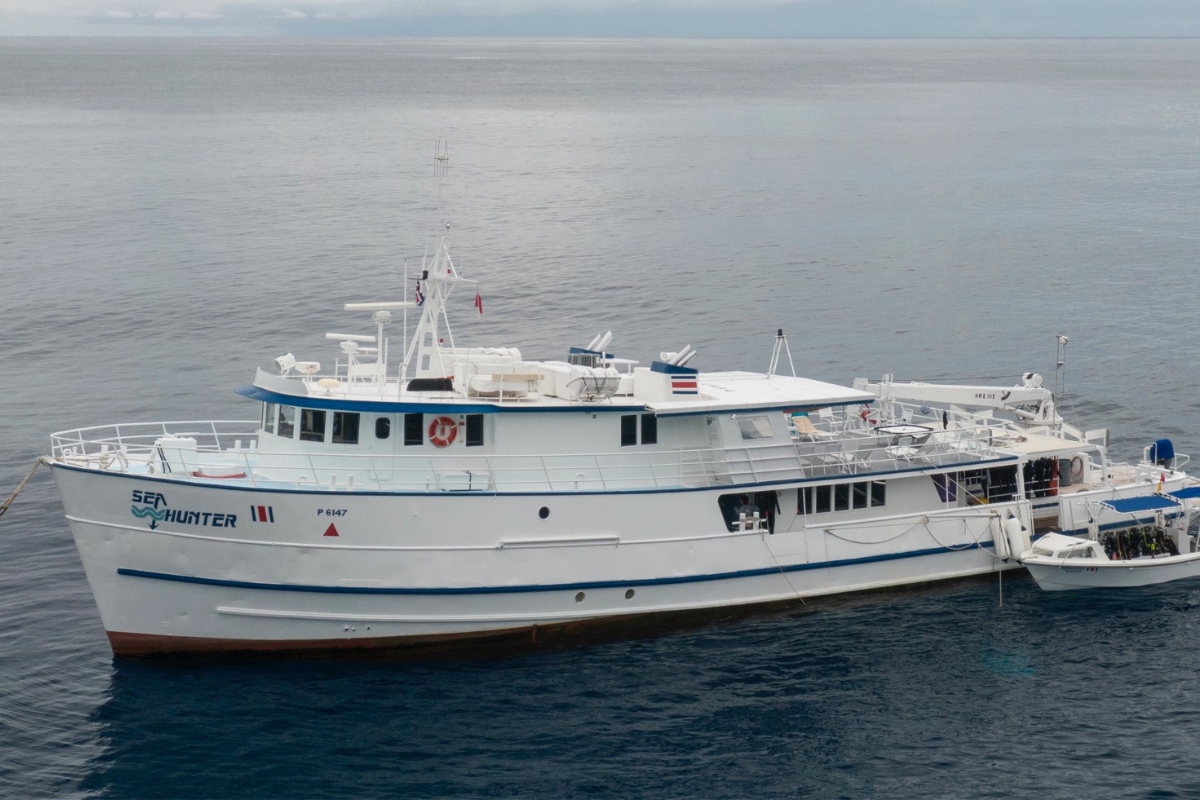
M/V Sea Hunter
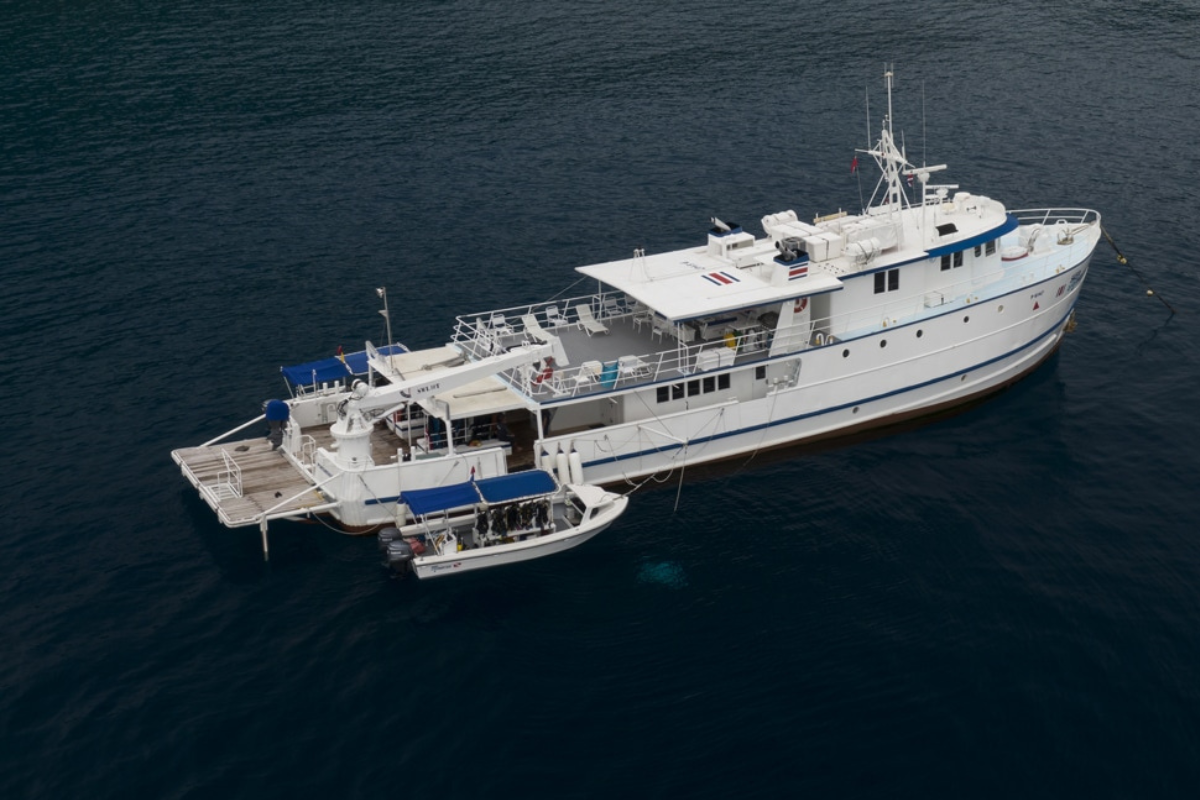
Your home away from home on the Silver Bank
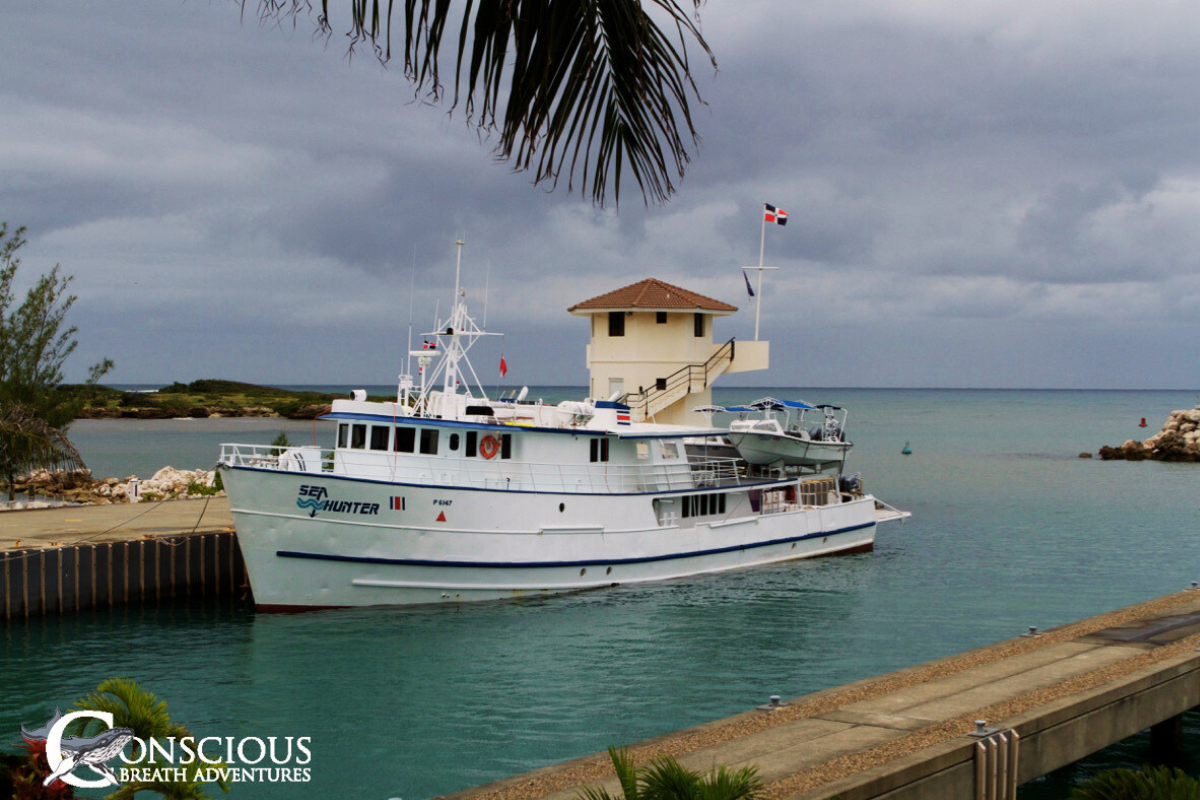
Boarding in Puerto Plata, Dominican Republic
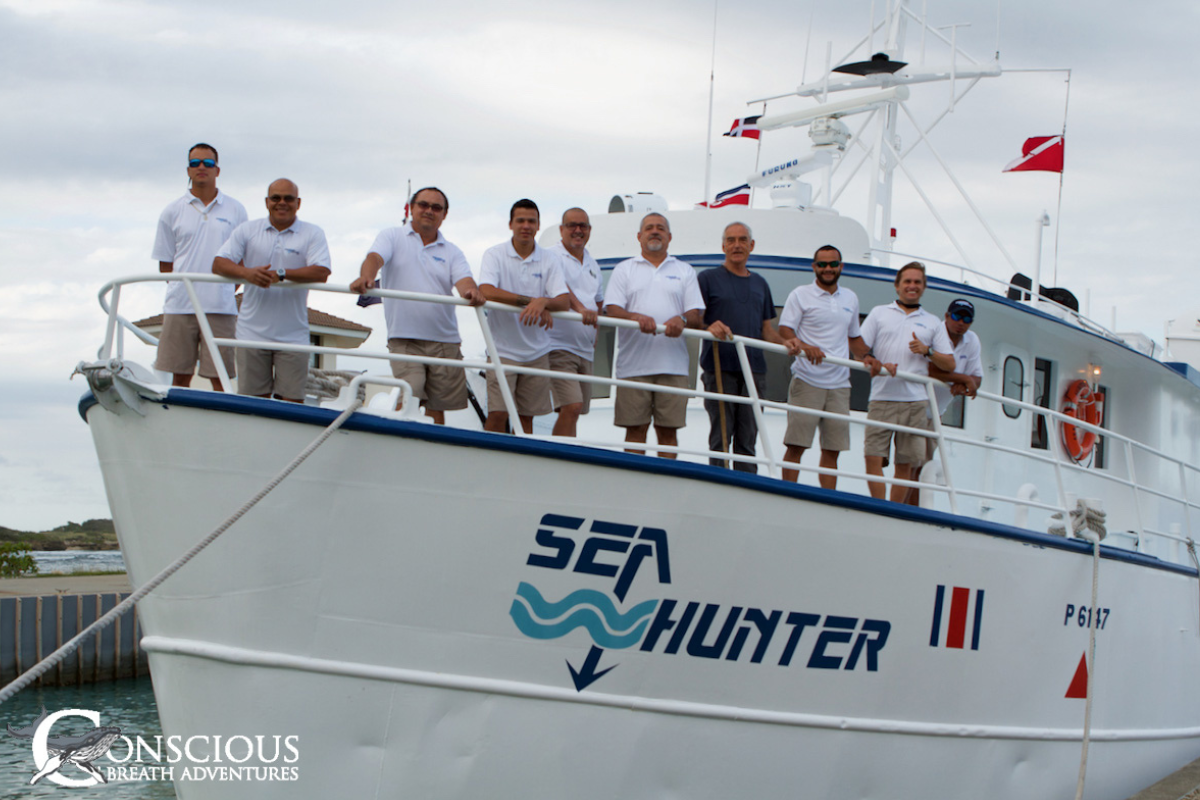
A full-time professional crew ready to meet all your needs
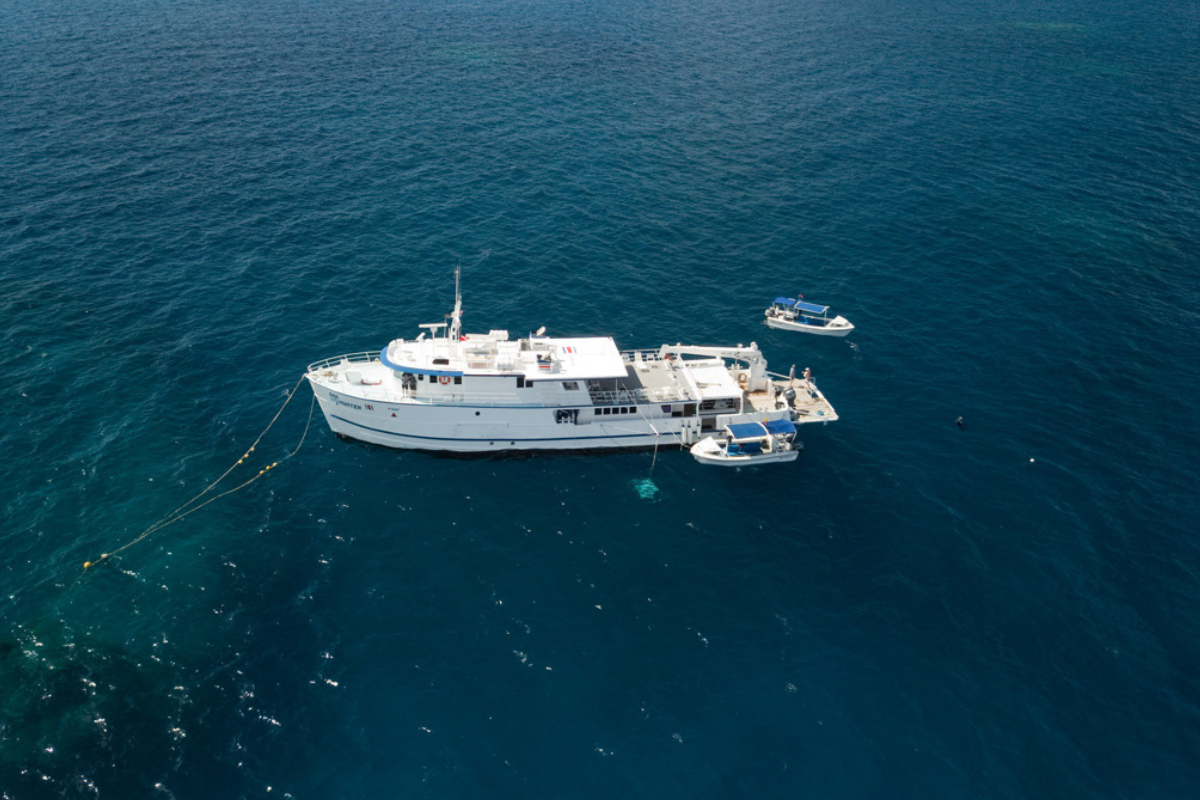
Ready for the Day’s Adventure
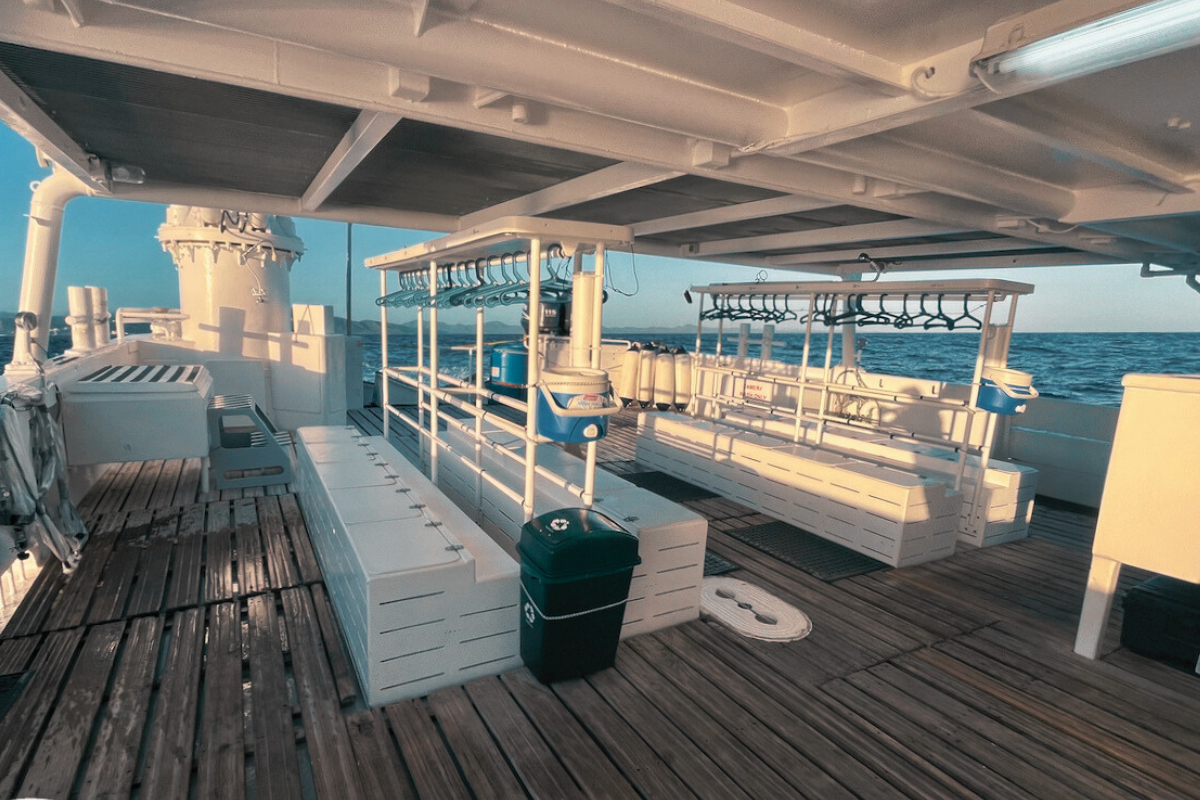
An expansive dive deck for all your equipment
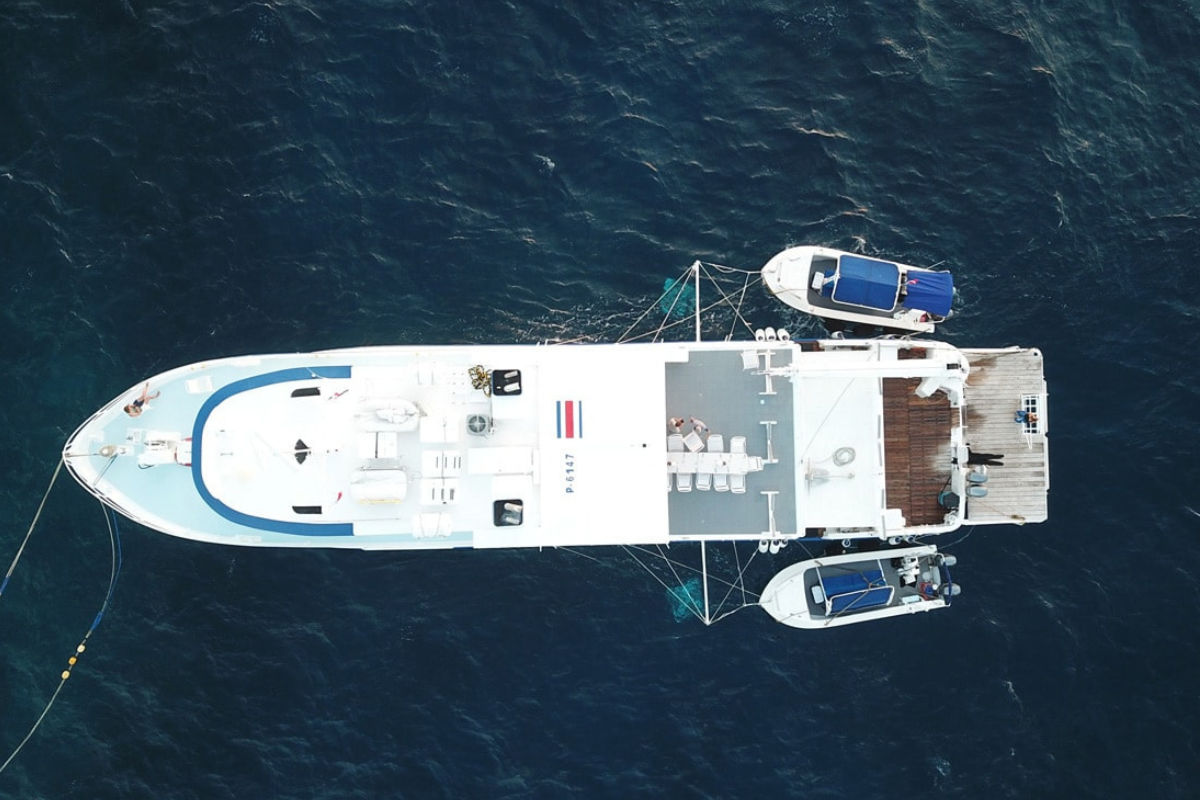
Your starting point for adventure
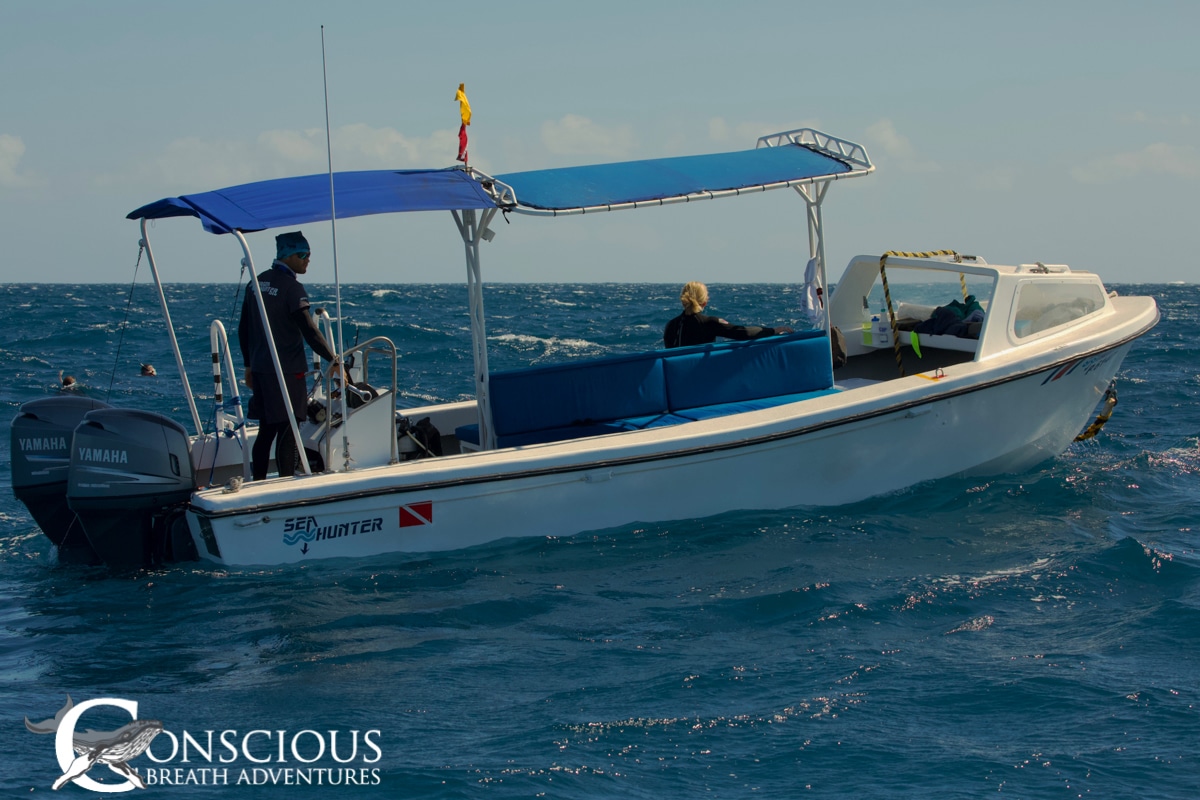
Fully cushioned bench seating, expansive sun shade
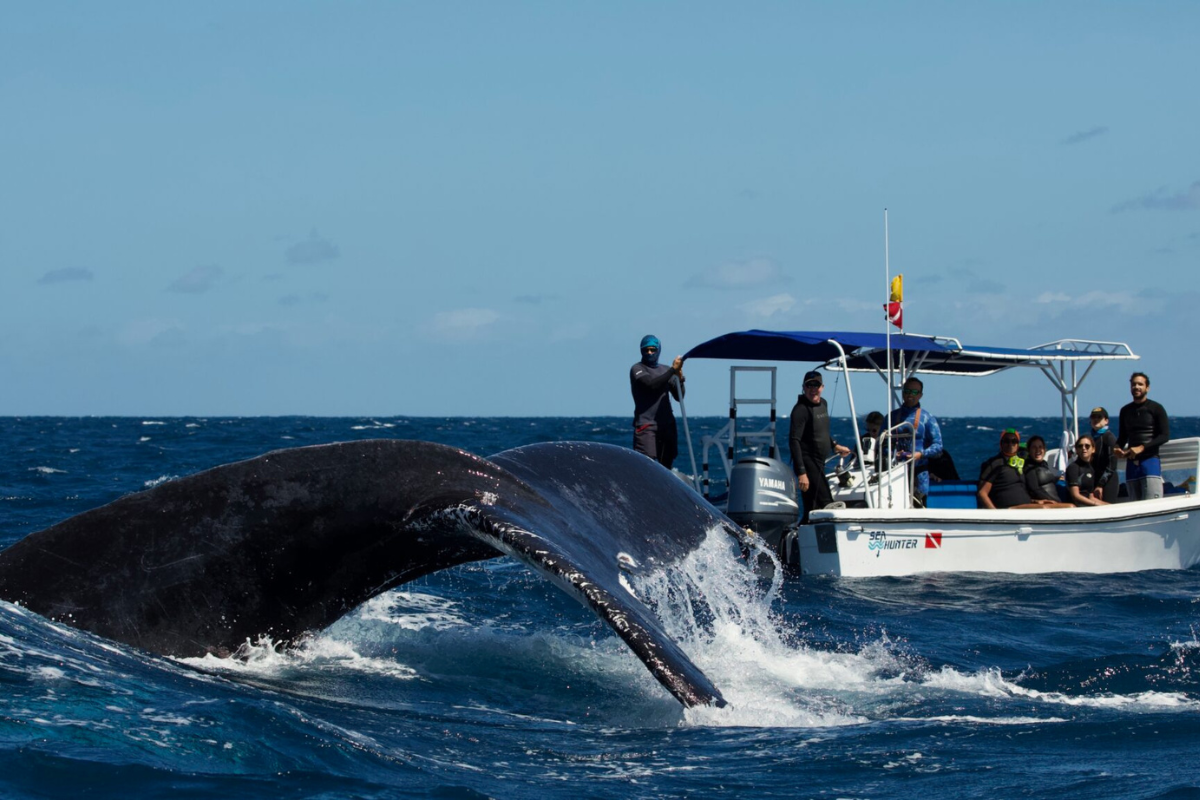
Unobstructed views of the Whales
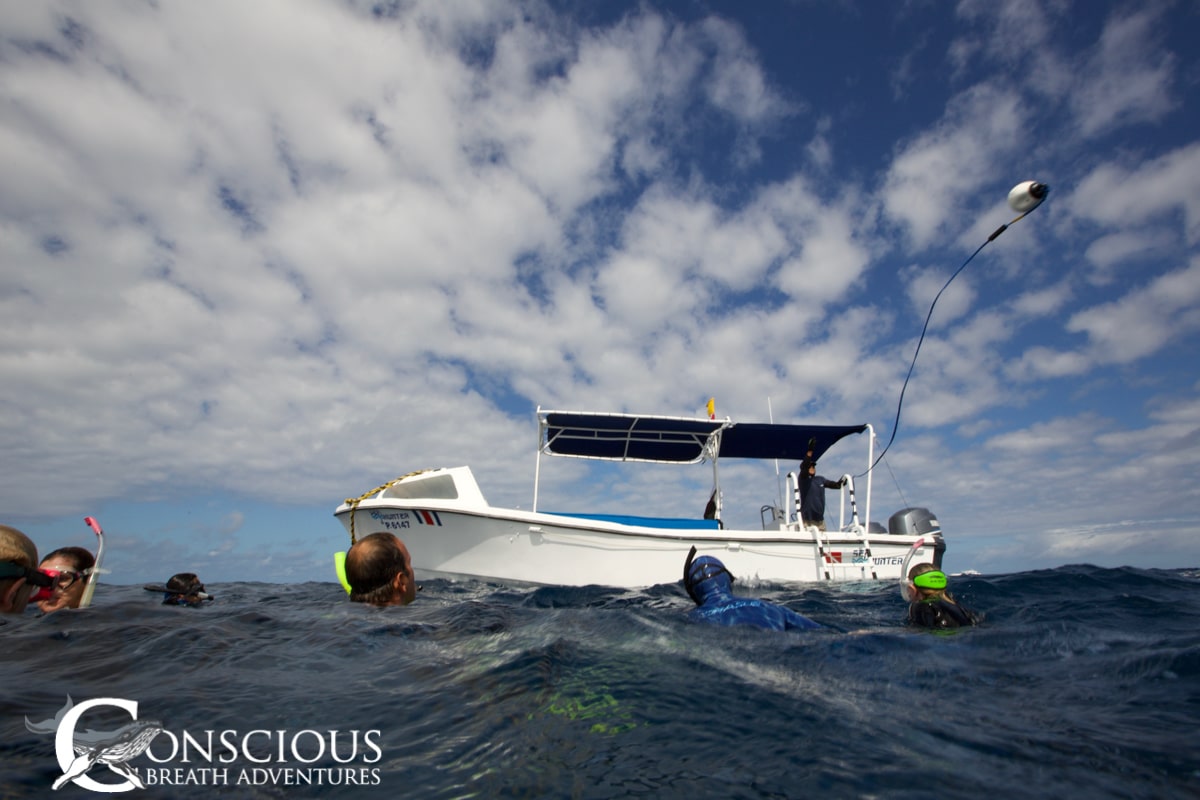
25’ fiberglass boats
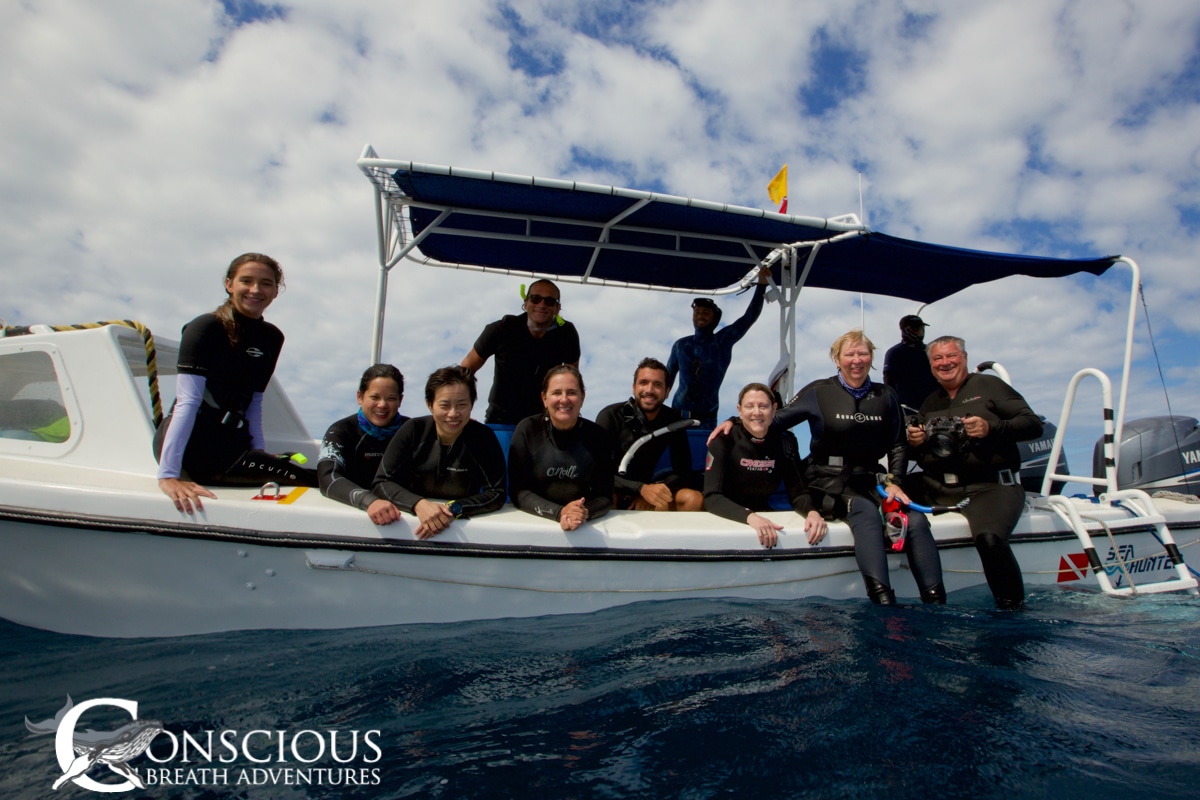
Stable & Seaworthy
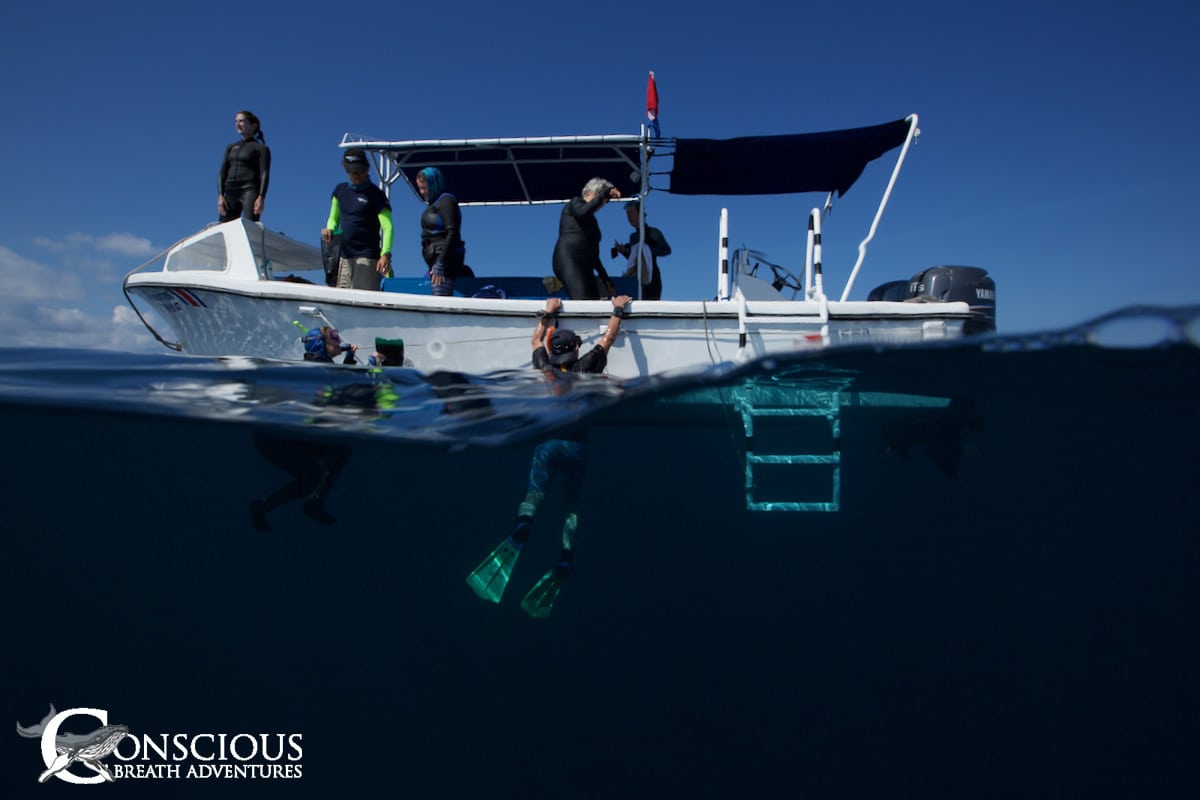
Sturdy ladders for easy boarding
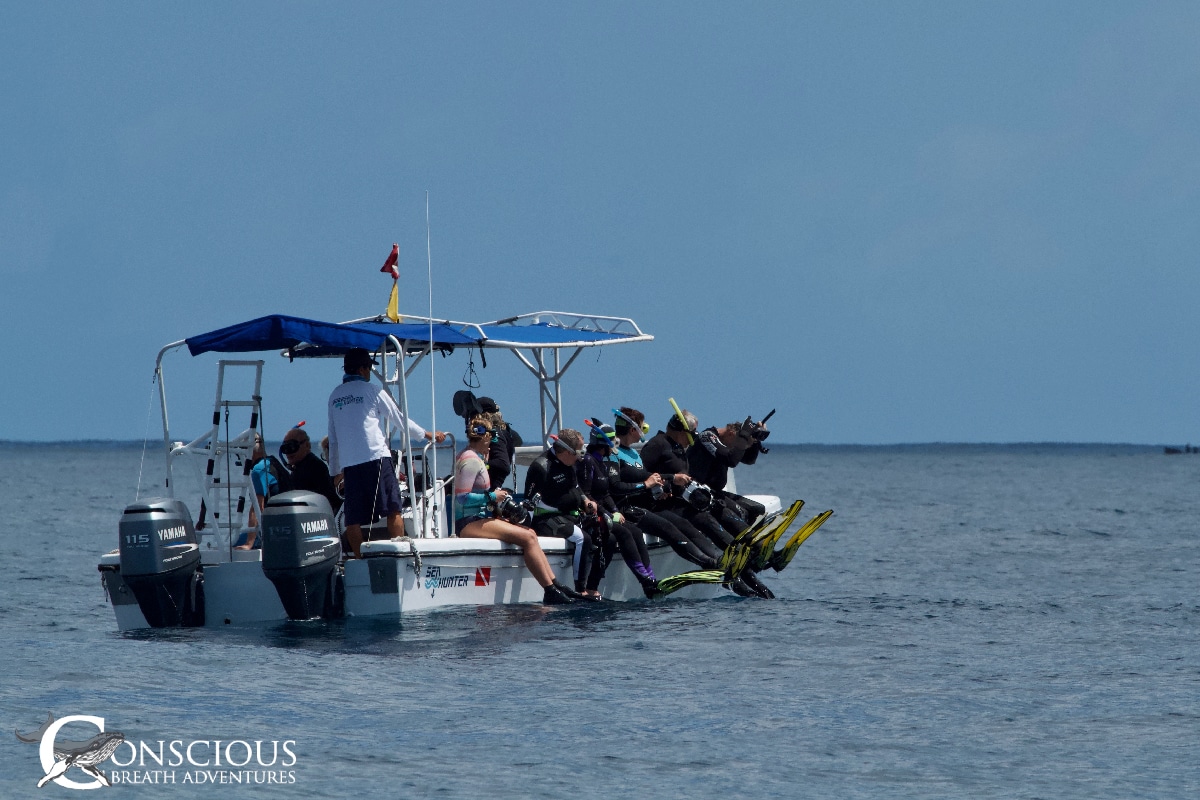
Easy entry into the water
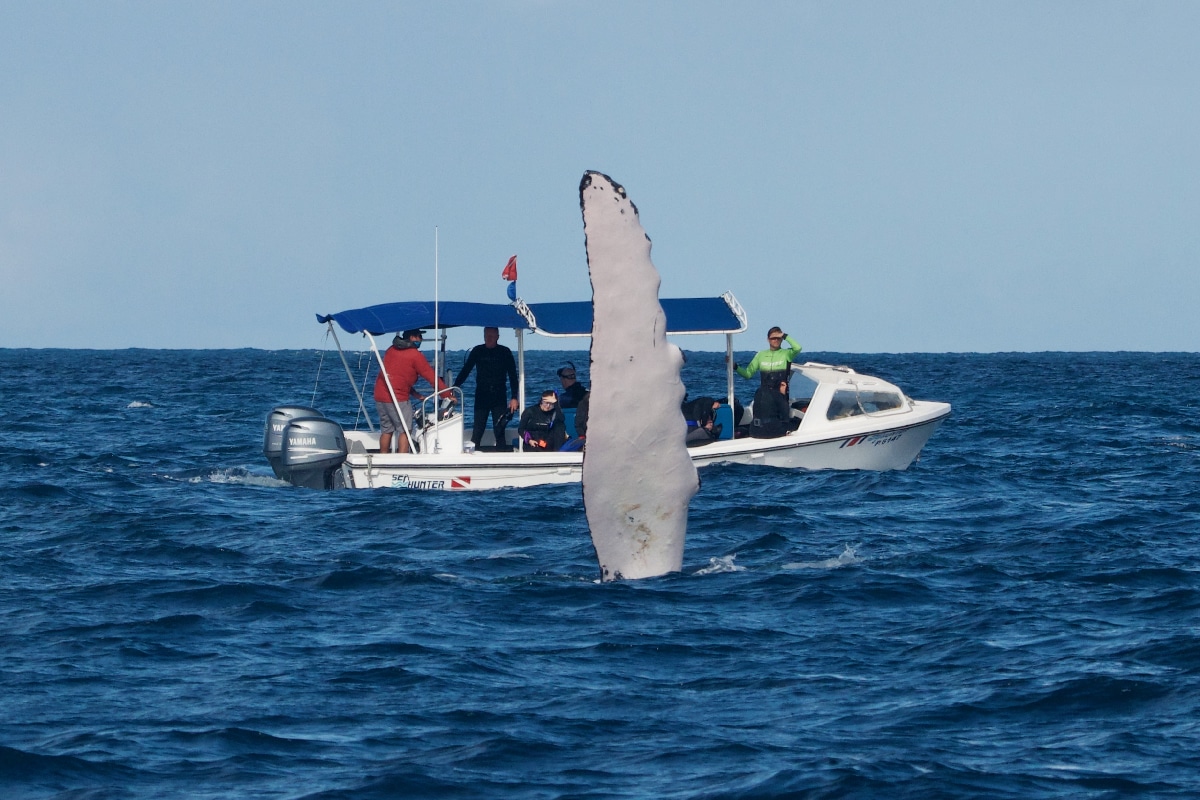
The best whale boats on the Silver Bank
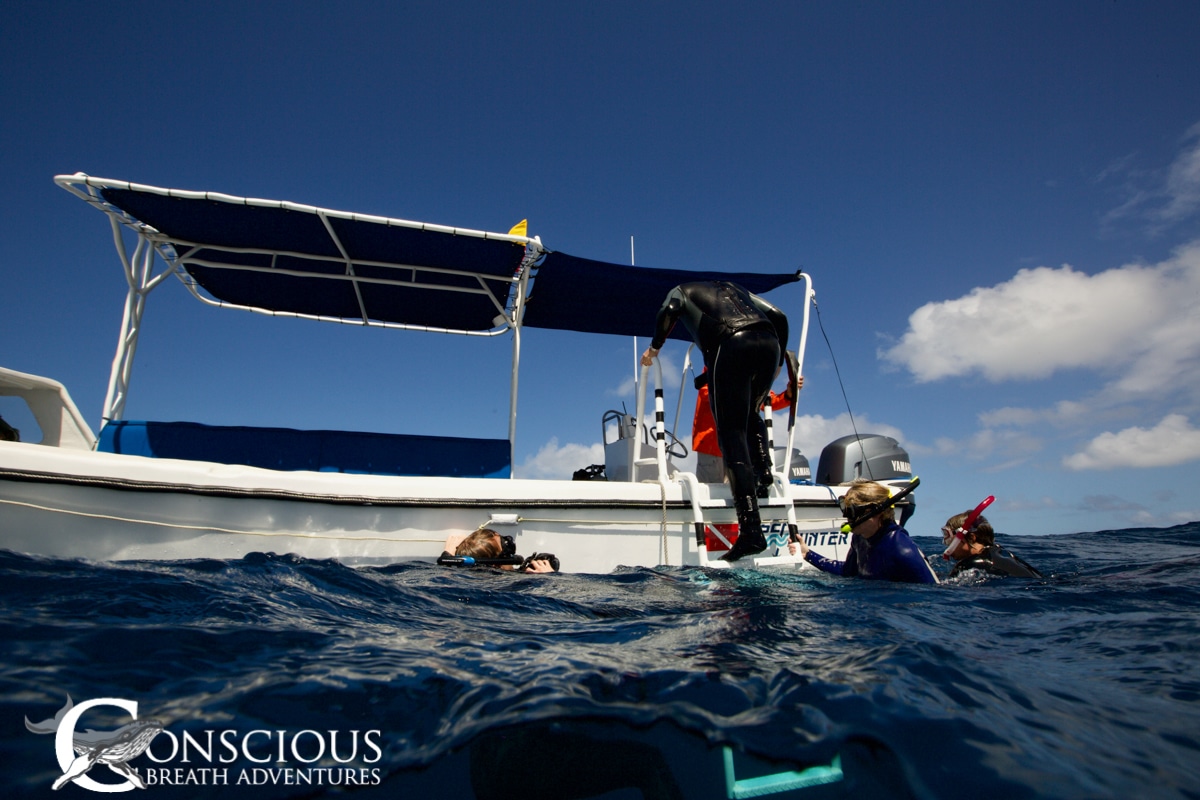
Sturdy ladders for easy boarding
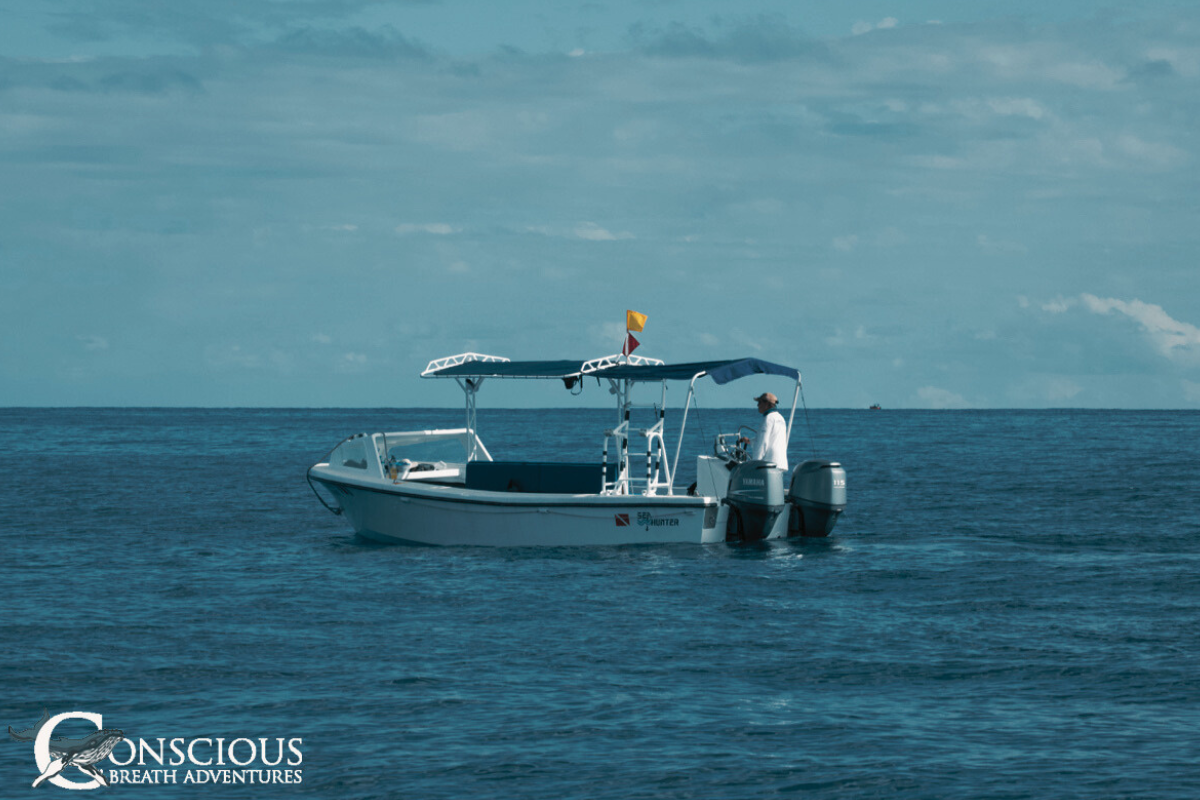
Twin outboard engines for safety and reliability
Accommodations
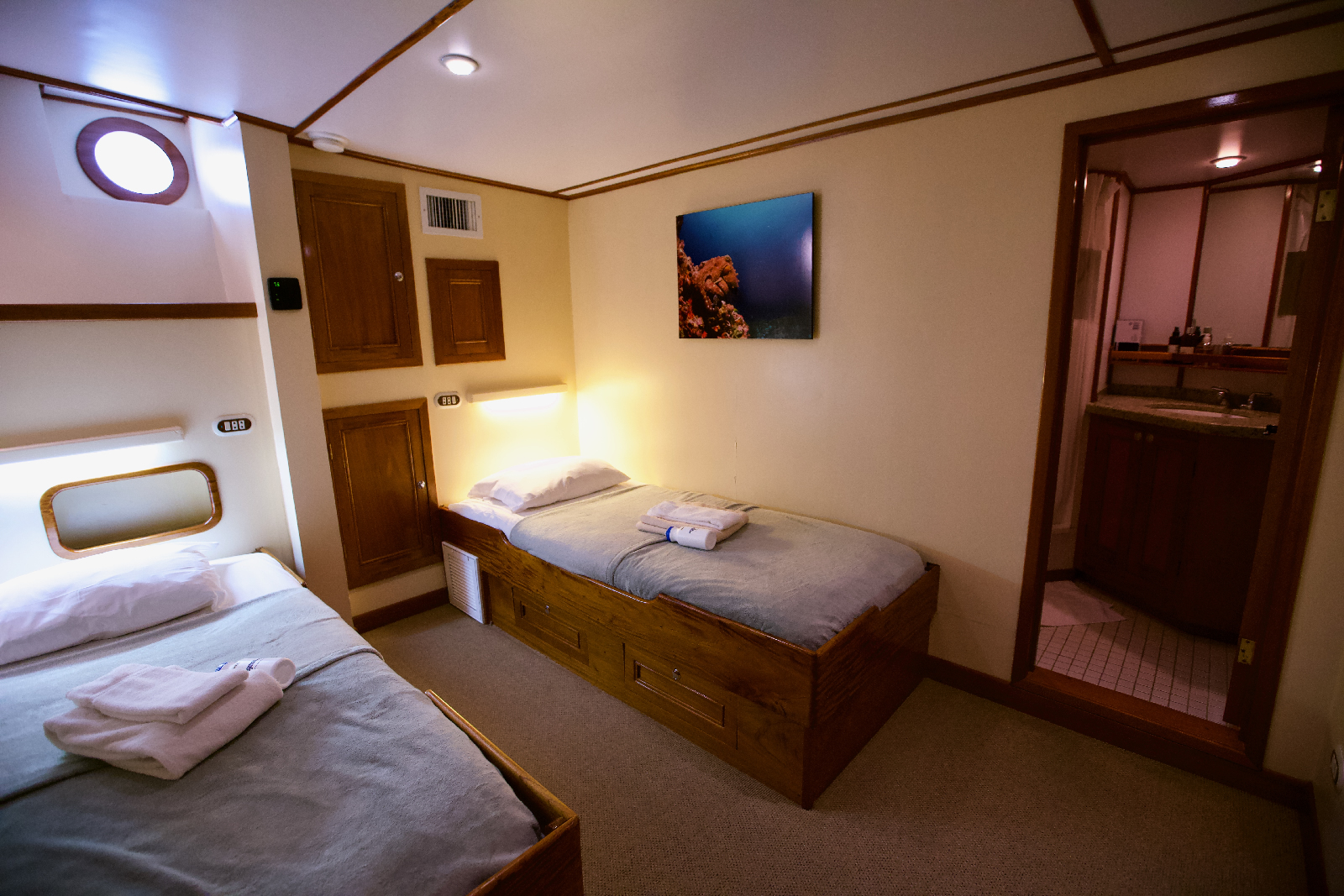
Deluxe Twin Cabin
With two twin-sized beds, ensuite facilities
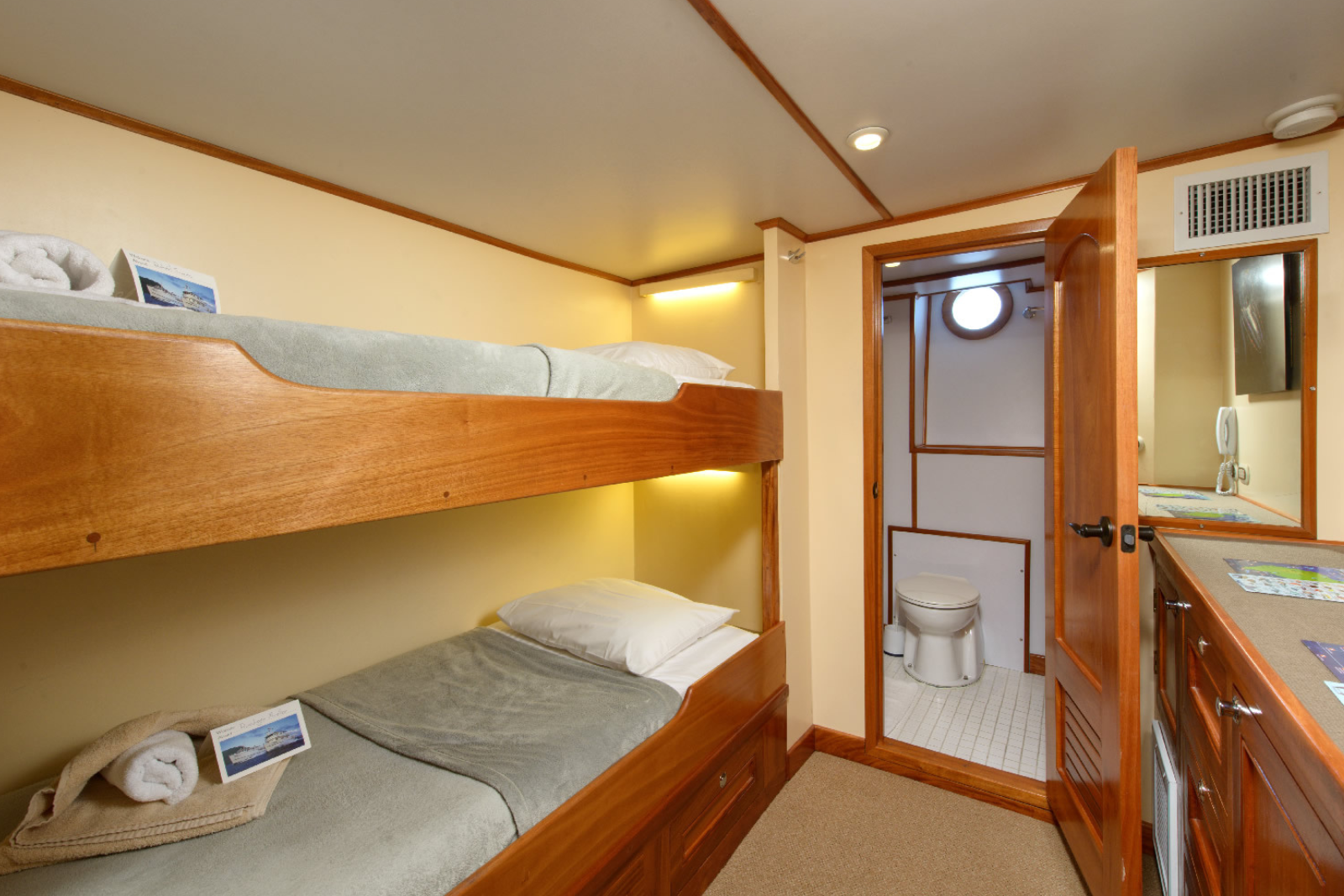
Standard Cabin
With two twin-sized bunk beds, ensuite facilities
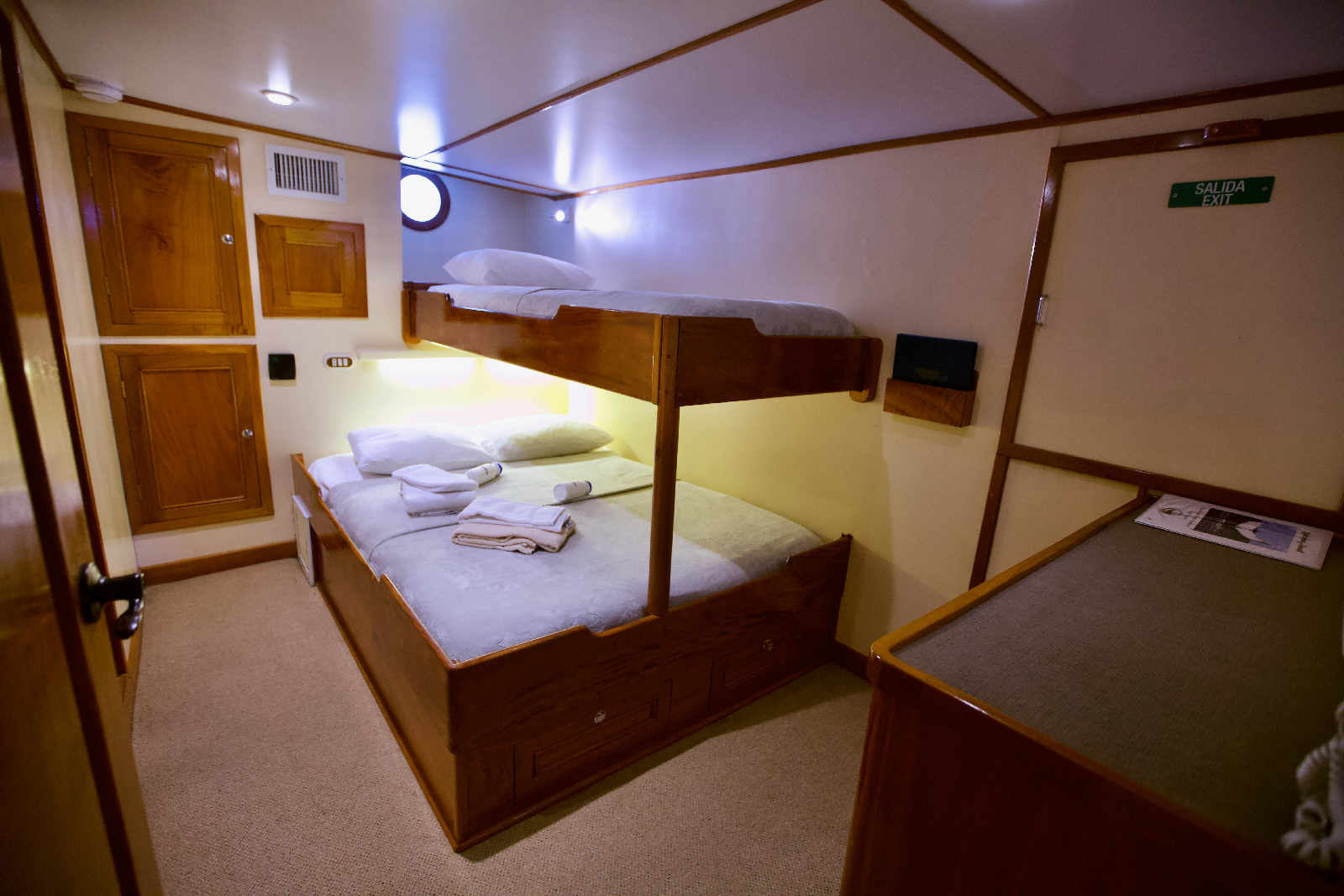
Deluxe Queen Cabin
With queen-sized lower bed plus twin-sized upper bed, ensuite facilities
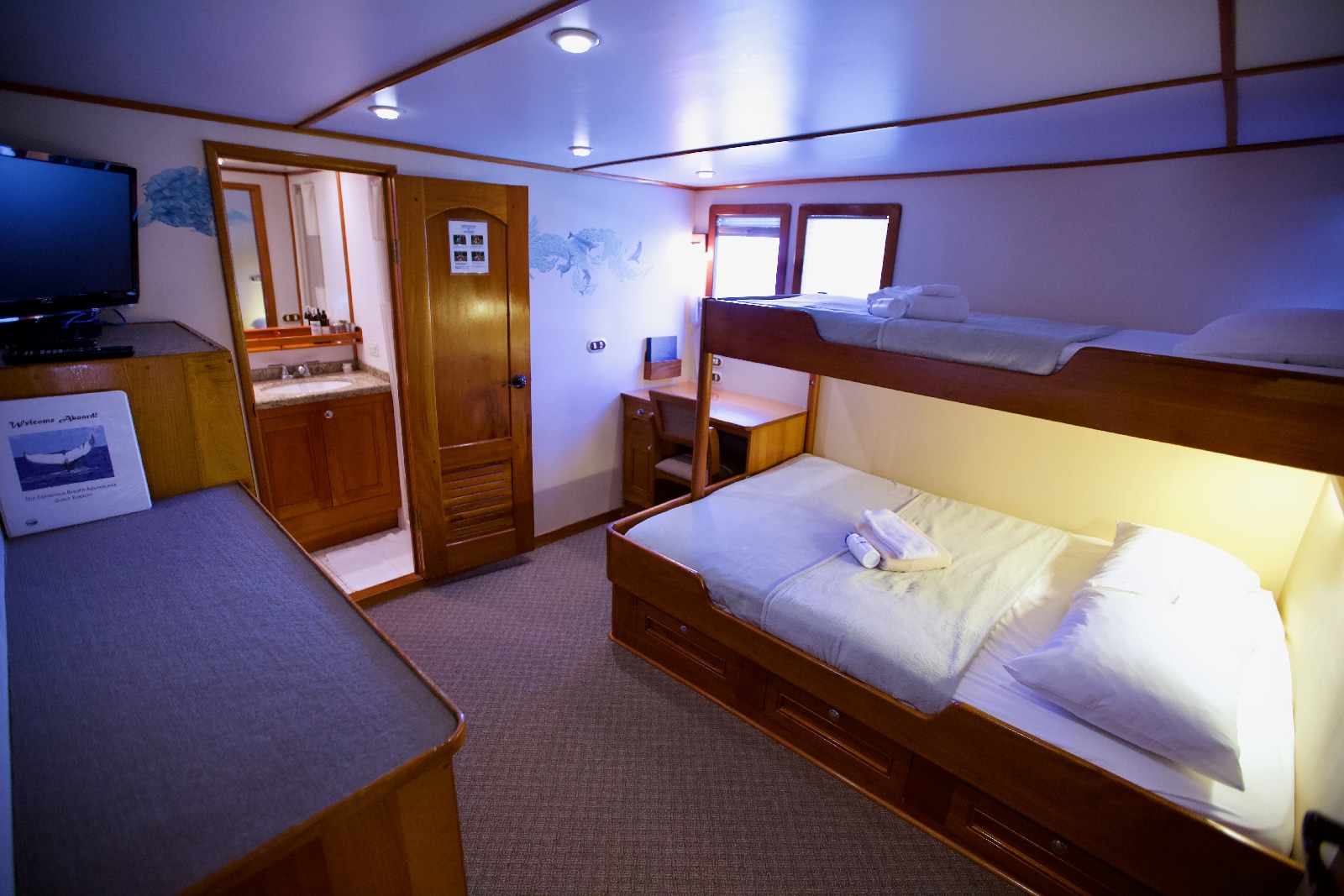
Master Cabin
With queen-sized lower bed plus twin-sized upper bed, ensuite facilities
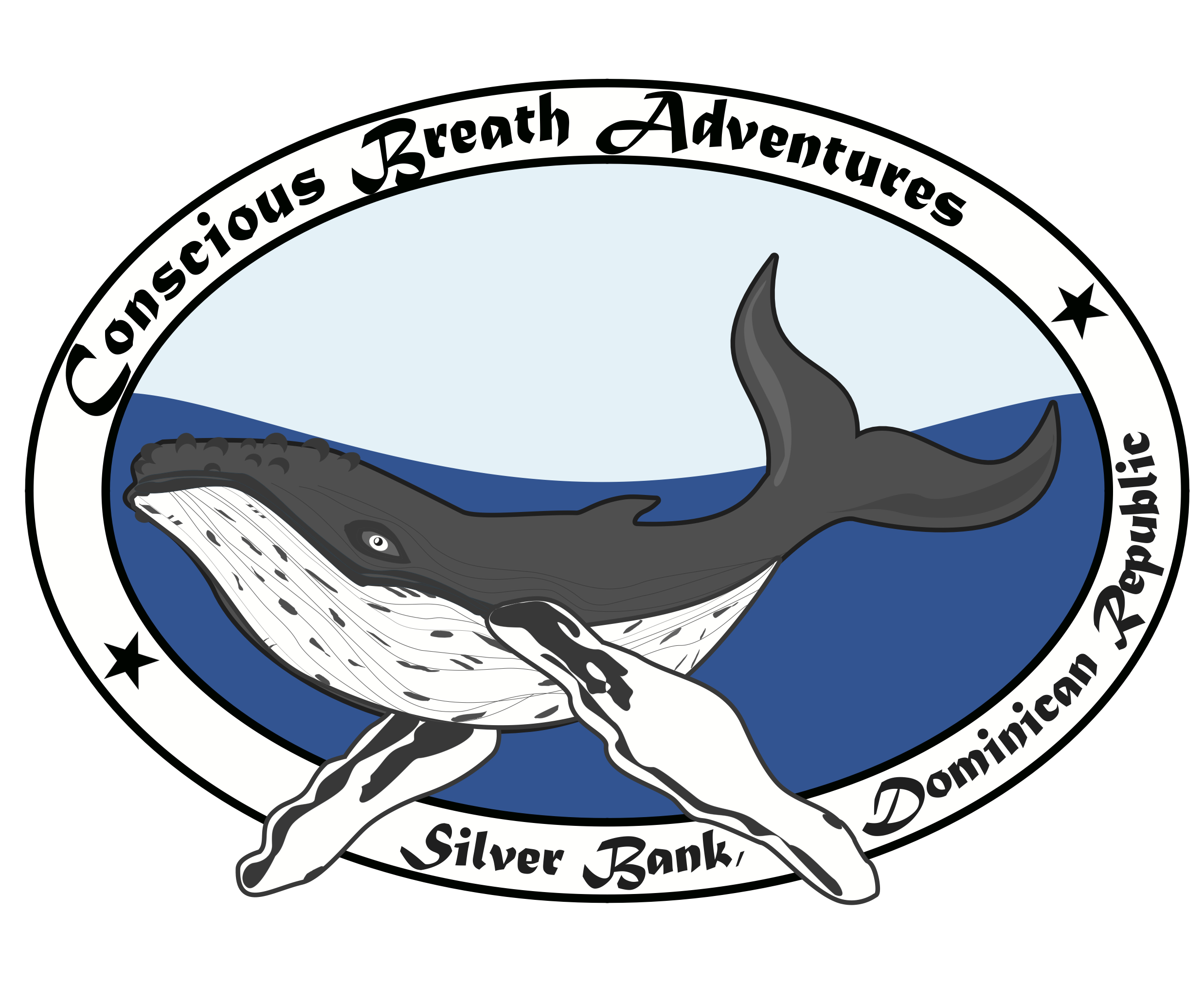
Silver Bank Geography and Location
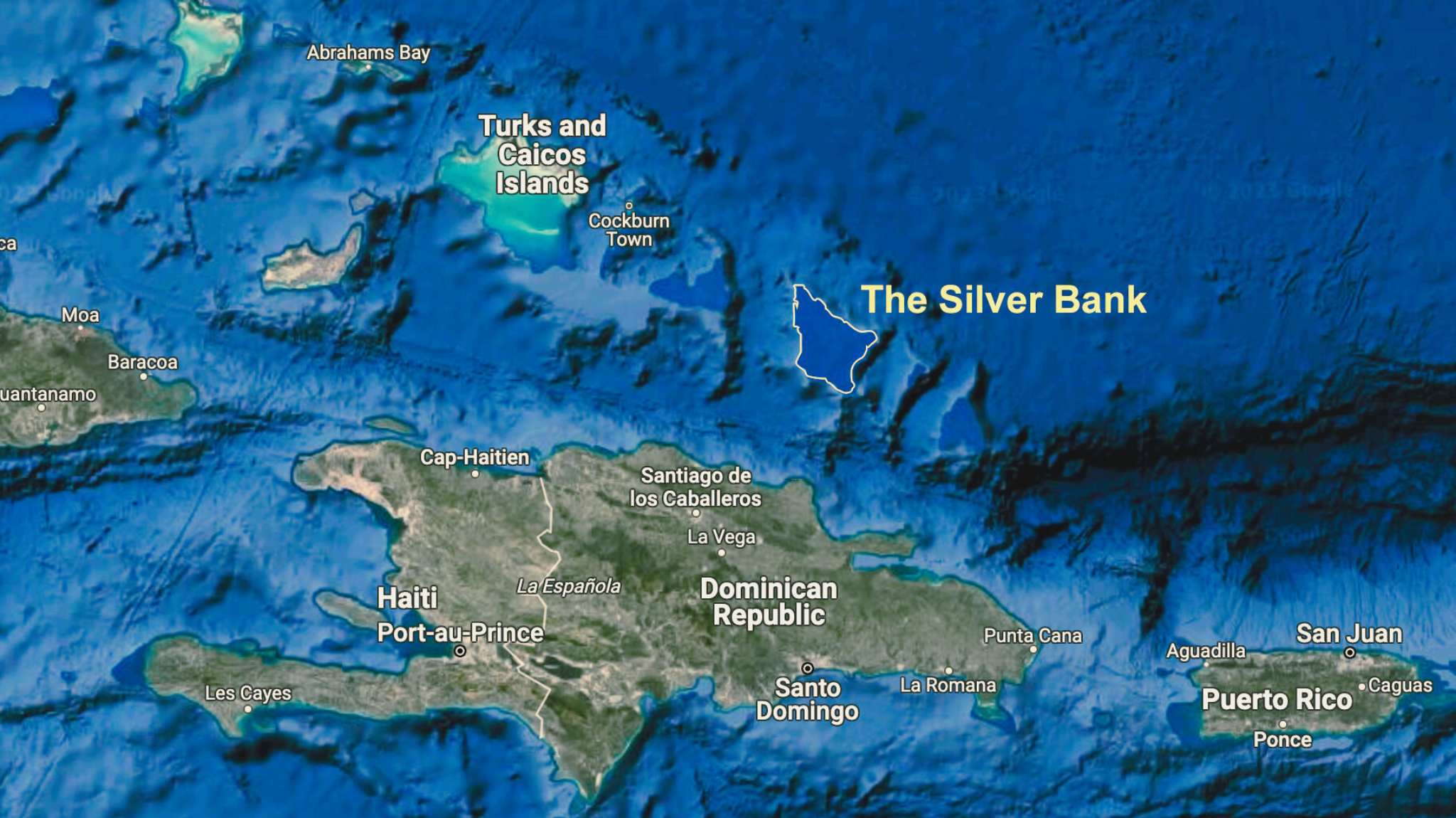
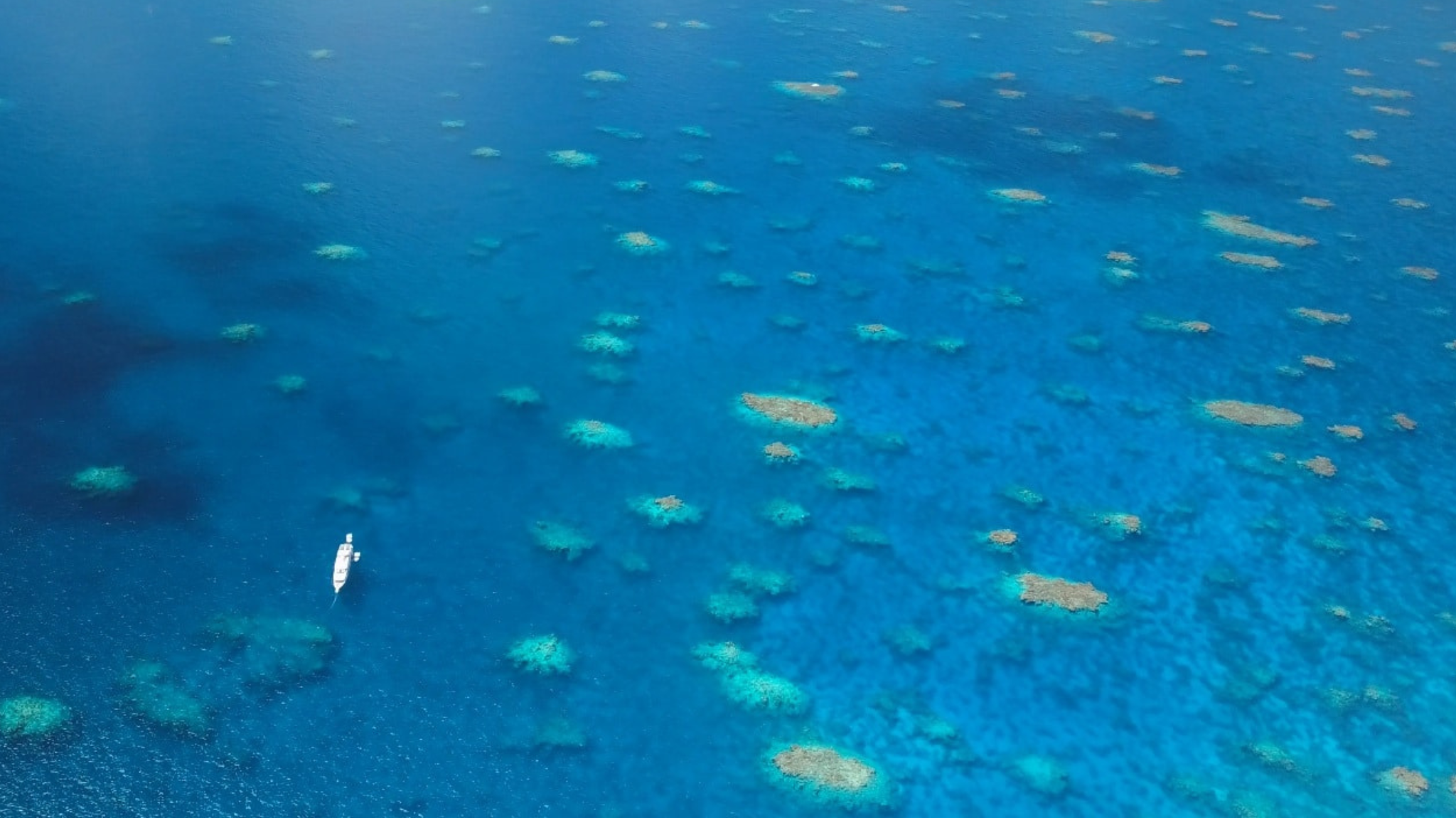
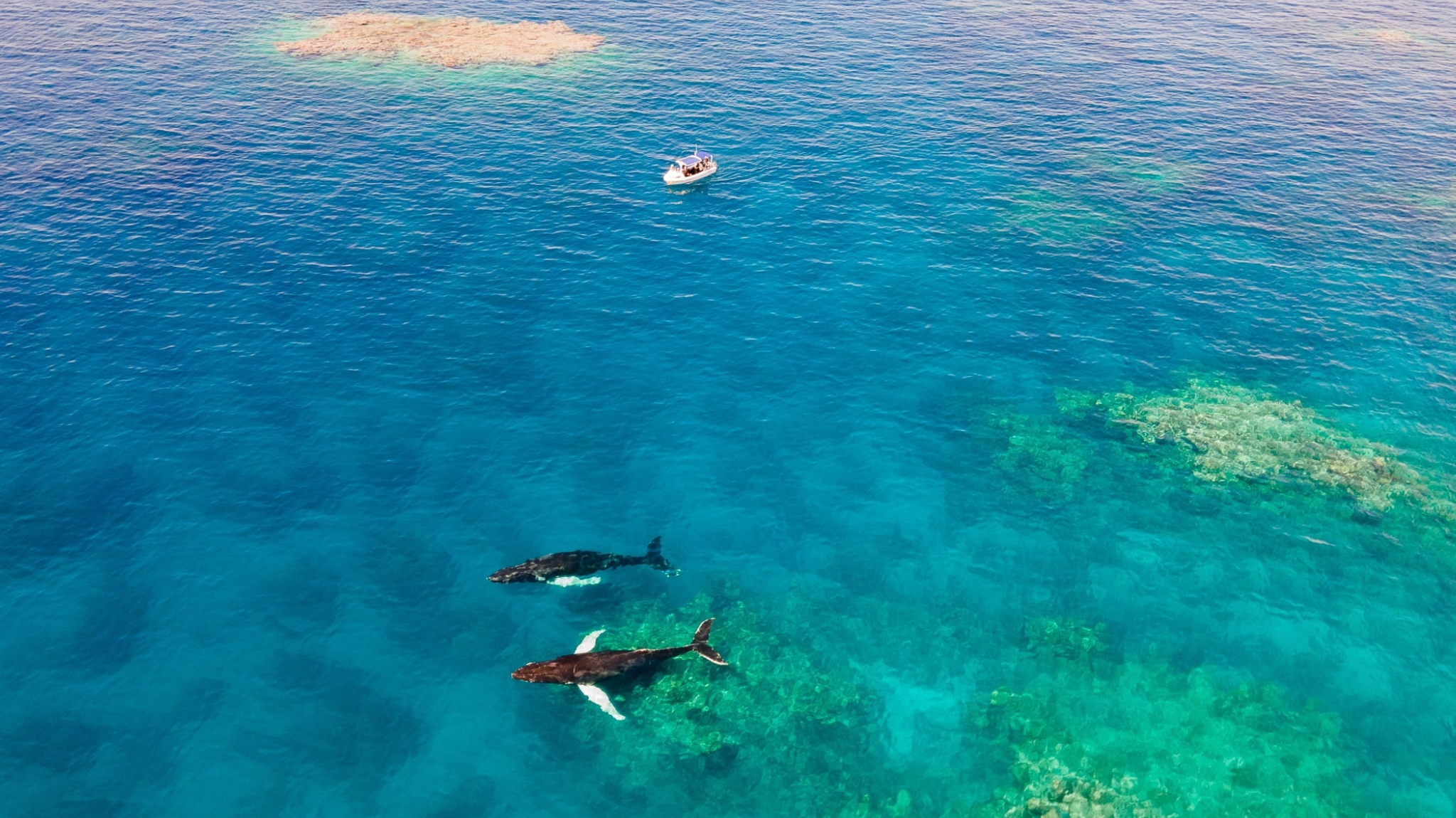
At seventy miles from the nearest land and surrounded by ocean waters thousands of feet deep, the Silver Bank makes the perfect sheltered hideaway for whales to have their young. It is located midway between the islands of Hispaniola (the Dominican Republic and Haiti) and the Turks and Caicos.
The Bank is a territory of the Dominican Republic and part of The Sanctuary for the Marine Mammals of the Dominican Republic. The irregularly shaped 25 x 35 mile (40 x 56km) rocky area rises to a shallow submerged plateau with depths of 60′ – 100′ (18-30m).
The northeastern edge of the bank hosts an impressive chain of coral heads. Ocean swells break on these patch reefs which absorb that wave energy. Inside the reef we find a sheltered anchorage where we comfortably moor for the duration of your visit.

About Us
Our team has a diverse background with decades of experience on, in and under the water. This includes acting as in-water guides introducing guests safely to the sea. And, also ashore; working to protect the planet for future generations. Together, our unique combination of experience, skills, ethic and philosophy provides an unmatched foundation for your experience on the Silver Bank.
As a team, we also share a deep respect for the oceans and sincere desire to spread this passion. These feelings are reflected in our philosophy. Our goal is to provide an eye-opening adventure that will inspire love and respect for the whales and their environment.
For a deeper understanding of who we are and what we stand for, please read about Our Name and Philosophy. You can learn more about members of Our Team; and how we apply this philosophy through our values in education, conservation and research. And get in touch! We would love to connect with you in person or through any of our digital channels.
We look forward to meeting you!
What Our Customers Say
Frequently Asked Questions
Costs & Reservations
What does the travel package include?
Seven nights and six days accommodations aboard, starting with guests boarding Saturday evening at approximately 5:00 pm; and disembarking the following Saturday morning at approximately 8:00 am.
You will have five days on the Silver Bank with up to four and one half (4.5) days of tender (small boat) time to look for whales, up to nine tender excursions, weather permitting as per Sanctuary rules.
- Three meals a day aboard the vessel, except for the last (Friday) night, which will be ashore at guest’s expense.
- Morning and afternoon snack.
- All beverages, including carbonated, non-carbonated, and alcoholic; a limited selection of beer (local) and wine is provided. Distilled spirits are not provided, but may be brought on board the vessel if desired.
- Morning in-room beverage service.
- Nightly turn down service.
- Fresh towel service daily.
- Entertainment library.
Please see our Costs, Terms & Conditions for complete details.
What is not included in the travel package?
- Any airfare or airfare related expenses.
- Tourist Card required at arrival airport (US$10 cash at arrival airport).
- Excess baggage/lost baggage charges.
- Transfers to and from or between airport, hotel, vessel, bus station, tours; any ground transportation.
- Hotels or any type of shore accommodations.
- Any Sanctuary & Port Fees (currently $500 pp, fees subject to change).
- Any Fuel Surcharges (currently estimated $100 pp, subject to change).
- Any additional Permit Fees required for professional photography or videography in the Sanctuary.
- Gratuity for Crew (10% of fare suggested).
- Dinner the last (Friday) night, which will be ashore.
- Distilled spirits or hard alcohol beyond the supplied beer (local) and wine.
- Snorkeling and/or camera/video equipment rental.
- Souvenir Video DVD, and/or Photo CD, and/or Audio CD.
- Souvenir t-shirts and/or sundries.
Please see our Costs, Terms & Conditions for complete details.
How do I reserve a space?
To place a reservation please start by contacting us. You can select your preferred dates here on our schedule and complete a Reservation Request Form, or fill out our inquiry form. Once we have communicated and verified availability, selected dates and accommodations we will place a reservation in your name. Guests must then provide to Conscious Breath Adventures within seven days of initial reservation a non-refundable deposit of $1,000. Please note that space cannot be held more than seven days without a deposit. Please see our Costs, Terms & Conditions for complete details.
Do I need trip insurance?
Conscious Breath Adventures strongly recommends each guest purchase comprehensive accident, medical, baggage and trip cancellation/interruption insurance. Trip insurance will protect you from financial disappointment if you are prevented from making your scheduled trip due to unforeseen illness, delays in transit, or in the event that unforeseen circumstances prevent the vessel from making its scheduled trip. In an event where it is necessary to cancel or interrupt a charter due to weather or any matter beyond the control of the servicing vessel and therefore Conscious Breath Adventures, there will be no refund or credit issued. We also recommend diving accident insurance, which provides coverage while snorkeling and will cover evacuation costs in the event of an emergency. One important note: some travel insurance companies cover snorkeling in their policies. Read your policy carefully, if snorkeling is a covered activity then additional dive insurance may not be necessary. See www.CSATtravelProtection.com; www.TravelGuard.com; www.DiversAlertNetwork.org; www.DiveAssure.com.
The Onboard Experience
What amenities are aboard?
All staterooms are individually air-conditioned and fitted with private toilets, showers and sinks. Some toiletries are available for your use onboard. The yacht is equipped with hairdryers that are provided upon reqest. Rooms are tidied and beds made daily and fresh towels are placed in each stateroom as requested. The Sun Deck boasts lounge chairs and seating in both sun and shade.
How much storage space is available in my cabin?
There is ample storage space in your cabin, including hanging closets and hangers, drawers, and space under the beds, but it is a good idea to pack in soft-sided luggage (duffel bags), not hard suitcases. That will ensure that your bags fit under the beds and you will have room to spare.
What languages are spoken on board?
English is the primary language spoken on-board. Spanish is also spoken by some crew members.
What kind of food is served?
The three daily meals, prepared by our onboard chef, are a delicious international mix with a local flair. Breakfast (cooked to order), hearty buffet lunch and dinners are served daily in addition to fresh mid-morning and mid-afternoon snacks. Beverages (including beer and wine) are complimentary while onboard. Distilled spirits are not provided but guests are welcome to bring aboard their own to enjoy.
If you have any special dietary requirements, please advise us as soon as possible so we can adequately prepare to meet your needs. Vegetarian and vegan meals are not a problem with prior notice. However, certain special dietary and beverage requests may not be available on a consistent basis due to the remote nature of this location and local availability of supplies so advanced planning may be required.
What additional expenses will I be responsible for while onboard?
Any ship’s store purchases aboard the M/V Sea Hunter, equipment rental fees, and email or phone charges must be settled onboard using cash or credit cards prior to departure. In addition, Conscious Breath Adventures (CBA) offers video and photo compilations documenting your week on the Silver Bank for sale, as well souvenir t-shirts. Acceptable methods of payment for CBA merchandise include U.S. Dollars, Traveler’s Checks and personal checks drwan from US banks but no credit cards. Crew gratuities are not included and can be paid to the vessel by cash or credit card (Visa, MasterCard, American Express) but cash is strongly preferred as a significant percentage is deducted from credit card payments for processing expenses. As a guideline a gratuity of 10% of the fare is customary.
Is there internet access?
Once the vessel leaves the marina there is no internet access available. The vessel does have a proprietary satellite e-mail system but there is no web-browsing capability. If guests would like to have email access, for a fee they can set up an onboard account to send and receive text-only communications but it is not possible to check personal accounts such as _@gmail.com, _@hotmail.com, _@yahoo.com, etc.
Is there cell phone service?
Cell phone service might be available to you when you are ashore in the Dominican Republic. Check your carrier’s plan and be sure to turn off international roaming services to avoid hefty charges. You may have service ashore but there is NO CELL PHONE service once we leave the marina. The vessel is equipped with satellite-based phone and email for emergency communications.
Odds and Ends
May I scuba dive with the whales?
Under regulations set forth by the Dominican Republic’s Dept. of the Interior and Parks Dept., no scuba diving is permitted in the Sanctuary for the Marine Mammals of the Dominican Republic except under special permit. These permits are generally only granted to researchers and/or film crews for specific projects.
What are the rules governing professional photographers and videographers?
Professional photographers and videographers working in the sanctuary must identify themselves as such and undergo a separate application and permitting process with the Dominican authorities governing the Sanctuary. Any additional required fees are the responsibility of the person or persons making the application. Contact us for more information.
What are the age limits for participation?
There is no upper age limit but the guest is responsible for determining their own fitness to participate. Please contact us if you have questions. We welcome children aboard as they are the stewards of the future, but there are limited recreational activities onboard and we remain offshore the entire week so please be sure your child will be interested and engaged for the duration of the cruise. Some general policies regarding minors are as follows:
- minimum age 8, with the above conditions considered
- all cabins are double occupancy only, three to a room is not permitted
- a parent must berth with the minor child
- the child must be supervised/accompanied at all times
What do we do on the day we return to the marina?
The M/V Sea Hunter typically returns to port Friday afternoon around 4:30 p.m. Lunch will be served onboard underway and upon arrival in Cofresi, passengers will be at their leisure to relax onboard or stretch their legs ashore. You will be invited to convene for hors d’oevres at 6pm to enjoy a presentation of the week’s best video and photos. Dinner will be ashore at your expense on Friday evening; usually a group will dine together at a nearby local restaurant. You may stay onboard Friday night or disembark for a local hotel. Final disembarkation will occur Saturday morning at 8:00 a.m. after a continental breakfast.
Travel Information
What currency is used?
In the Dominican Republic, the currency is the Dominican Peso, but U.S. dollars and credit cards are widely accepted. Unless you will be staying in the Dominican Republic for an extended visit, it is not necessary to exchange U.S. dollars to pesos. Be sure to know the currency exchange rate before arriving. Once aboard, cash US$ and credit cards (Visa, MasterCard, American Express) can be used to pay vessel related costs such as crew gratuity; while cash is needed to pay Conscious Breath Adventures-related costs such as merchandise.
How do I pay for onboard expenses?
Expenses related to the M/V Sea Hunter, such as gratuity, fuel surcharge, and purchases from the onboard ship’s store can be paid via cash U.S. dollars or with Visa, MasterCard or American Express. Expenses related to Conscious Breath Adventures, such as photo & video discs or CBA apparel, can be paid via cash U.S. dollars or Dominican pesos, or by personal checks drawn on U.S banks.
What is our port of embarkation?
Our port of embarkation for your journey to the Silver Bank is the Cofresi Beach area a few miles west of the gateway city of Puerto Plata on the north coast of the Dominican Republic. We sail from Ocean World Marina, the only full service marina on the north coast of the Dominican Republic. A tourist destination featuring an adventure park, restaurant and casino, Ocean World Marina is where your transportation will deliver you to board the vessel on Saturday afternoon, and where you will disembark at the end of your adventure. Learn more about our port of embarkation here.
Where do I fly into the Dominican Republic?
It is anticipated that all passengers will arrive in the Dominican Republic by air. In Puerto Plata, the Gregorio Luperon International Airport (airport code POP) is closest to the Ocean World Marina. Transport from the airport to Cofresi should take about 30 minutes, less to area hotels. Another option is Cibao International Airport, located in Santiago (airport code STI). Transport from Santiago to Cofresi is about 90 minutes. Be advised that since airfares and flight times can vary significantly between POP and STI, you should investigate both options keeping in mind the differences in costs for ground transportation. Other international airports are available but will add significantly to surface travel time and expense, be sure of where your airport is located relative to the marina.
When should I plan to arrive?
Guests board the vessel Saturday afternoon at 5:00pm. We recommend that if you will be flying from, or connecting through, any airport that may be affected by winter weather, or are arriving from outside of North America, you should consider arriving at least one day before embarkation, on Friday or before. This will allow time to overcome any delays in travel or baggage issues that may occur en route. Unfortunately, due to the specialized nature of this itinerary we can not delay the vessel’s departure due to travel related issues.
What travel documents will I need?
What should I know about customs?
Where should I stay when I get to the Dominican Republic?
How do I get to the marina?
Another option is to pre-arrange a transfer through a transportation company. In this case a uniformed driver will identify himself by holding a sign with your name on it. The van will then carry you to your destination. This can be very economical for groups of 3 guest or more. Our staff is happy to help you coordinate the most efficient and cost effective means of ground transfer, contact us for further assistance.
What to Bring
What Are the essentials for my trip?
WE RECOMMEND BRINGING AS MANY OF THESE ESSENTIALS IN YOUR CARRY-ON BAGGAGE AS POSSIBLE
- Passport: be sure to check expiration date when placing reservation
- Prescription medications/medical supplies: (There are no pharmacies on the Silver Bank; carry essential medicines in your carry-on baggage on the plane.)
- Snorkel
- Mask
- Fins
- Bathing suit
- Wet Suit: (2mm – 3mm should keep you warm enough unless you are sensitive to cold)
What are the essentials for an in-water encounter?
- SUNSCREEN: A high SPF waterproof sunscreen to use liberally every day; enough for a week. The tropical sun is very powerful, even in February, March and April. Please consider a biodegradable, eco-friendly product.
- MASK: A good fit on the mask is essential. There are as many sizes and shapes of masks as there are sizes and shapes to people’s faces: one size does not fit all. The only way to ensure that a mask fits properly is to try it on. And this may sound funny, but check to see if the mask leaks when you have a huge grin on your face; it can be a real problem for happy whale swimmers! When shopping for a mask, focus on fit. If you order from somewhere online and your first choice does not fit, return it for another. Check the return policy first; if a company won’t accept a return, shop elsewhere. Please do not bring full face masks as we feel these are inappropriate for the destination.
- SNORKEL: With snorkels, gimmicky, complicated, expensive snorkels are not always the best. Snorkels with some type of relatively streamlined splash protection and a purge valve will provide good service.
- FINS: We suggest full foot, closed heel snorkel fins, rather than open heel scuba fins. They are lighter and smaller, which makes them easier to pack, more comfortable, and they are designed for the job. Keep it light and simple. Be sure they are not too tight. You do not need very long freediving fins, and avoid very small exercise/boogie board/body surfing fins. These are suggestions only, if you already have a pair of fins that you like, bring them.
- DIVE SOCKS: With closed heel fins we recommend purchasing a pair of “dive socks,” which are 1-2 mm thick neoprene socks designed to help prevent chafing and blisters. Matched with a properly fitting pair of fins, you will be very comfortable. Look for them where you would find dive boots or “booties”, either in the local dive shop or online retailer.
- WETSUIT OR “DIVE SKIN:” Highly Recommended. Water temperatures will be in the mid to upper 70’s (23-26 Celsius), and the sun will be shining. A wetsuit will keep you warm in the water, and protect from sunburn at the same time. Do you chill easily? Then you should consider a full-length suit of 3mm or more. Don’t get cold too easily? Then maybe a “shorty” of 3mm or so will do. Comfortable in cooler waters? Then maybe a 1 mm suit, or thin lycra dive skin is all you need. Remember two things: first, a good whale encounter is passive, and you may be floating in the water without exerting yourself for an hour or more, which is an easy way to catch a chill. Second, these suits also provide valuable sun protection. You do not want to have to get out of the water during a good interaction because you got cold, sunburned, or both.
- MASK DEFOG DROPS: Small bottle of drops that will help to keep your mask clear so you can see the whales better. Mask defog drops are also available aboard. If you need to purchase snorkel equipment, a local dive shop in your town is better than a general sporting goods store. If you do not live near a dive shop, Austin’s Diving Center can provide personal service, professional advice, and a CBA discount. Austin’s Diving Center is familiar with the equipment necessary for the Silver Bank and they ship worldwide. Their website is: www.AustinsDiving.com. Other online equipment providers are: Diver’s Supply (www.Divers-Supply.com); Diver’s Direct (www.DiversDirect.com); or Leisure Pro (www.LeisurePro.com).
What weather can I expect?
- Humpback whale season is late winter to early spring and the weather may be cool and windy during the passage of stronger cold fronts, but the coral formations throughout the area provide us with plenty of protection from rough seas while at the mooring. Once moored, movement of the vessel is minimal. The nights are cool, around 70F – 75F (21C – 24C) but during the day the temperature can warm to 85F (30C). Days are generally sunny to partly cloudy, rain is uncommon but possible during fronts. The water temperature ranges from 72F -80F (22C-26C). Please note that sanctuary rules prohibit any whale watching activities from the tenders when winds exceed 25mph.
What clothes should I pack?
- Attire aboard is tropical casual, with the only dressier occasion being the final Friday night when guests dine ashore, but even that evening is casual. Below is a suggested packing list. Please remember that it is easier for everyone if you travel light.
FOOTWEAR: Sandals and a pair of lightweight walking shoes will do the job.
PANTS: A pair of jeans or light trousers will suffice.
SHORTS: A couple pairs of fast drying shorts, suitable to wear on the tenders.
SHIRTS: A handful of t-shirts, some short sleeved, some long. One or two nicer shirts for dining and ashore.
SWEATSHIRT/LIGHT JACKET/WARM CAP: It can be cool in the evenings when the breeze blows.
LIGHTWEIGHT WIND BREAKER/RAINCOAT: Lightweight waterproof outerwear is recommended to help keep you warm and dry on the tenders on those days when the wind, waves, and spray might be up.
BATHING SUIT(S): One to wear, one as spare.
TOILETRIES: While each cabin’s head comes with soap, shampoo, and conditioner dispensers, we recommend bringing your own personal toiletries.
What are some highly recommended niceties?
- POLARIZED SUNGLASSES: Polarized sunglasses will help you see through the water’s surface glare and see the whales much better.
BROAD BRIMMED HAT: For sun protection, with a chinstrap for breezy days.
DRY BAG: A small dry bag for use on the tenders to hold any sensitive personal gear, cameras, spare dry clothes, windbreaker, etc. Found at dive shops.
SNORKEL BAG: A compact bag for snorkel gear, to help keep it organized aboard the boats. A large mesh bag is simple, inexpensive and highly effective. Found at dive shops.
CAMERAS: Still or video, surface and/or underwater: photography/videography opportunities on the Silver Bank are exceptional! Whether it is a professional level DSLR, or a single-use point and shoot, a HD camera or a handy cam, for use above or below the water’s surface, bring it. Ample dry storage for topside cameras is available aboard the tenders. Don’t forget the batteries, chargers, memory cards & readers, etc.
PERSONAL TOWEL: A synthetic chamois or micro fiber mini camping towel: Great to carry on the tenders, they are compact and durable and will allow you to dry yourself off quickly after you get out of the water, which will help you to stay warm. They are also useful to wipe your hands before handling your camera.
BINOCULARS: A small pair of field glasses might be nice, especially while relaxing on M/V Sea Hunter between tender excursions. Whales are often seen near the boat.
LEISURE ITEMS: Although there is a selection of books, movies and music aboard, you may want to bring some of your own. There is an entertainment center at your disposal.
Emergencies
How do we communicate in case of emergency?
The M/V Sea Hunter crew is trained in first aid and accident management. The vessel is equipped with a complete first aid kit. Since emergency transportation and treatment cost is the responsibility of each passenger, we strongly recommend that you obtain special insurance to cover these costs, if they should arise.
If someone ashore must contact you in the event of an emergency while the vessel is on the Silver Bank, please contact us right away by calling (239) 248-7101 at any hour so that we can be informed and help with the situation.
Cell phone service might be available to you when you are in the marina in Cofresi but there is NO CELL PHONE service once we leave the marina. The M/V Sea Hunter is equipped with satellite based phone and email for emergency communications.
